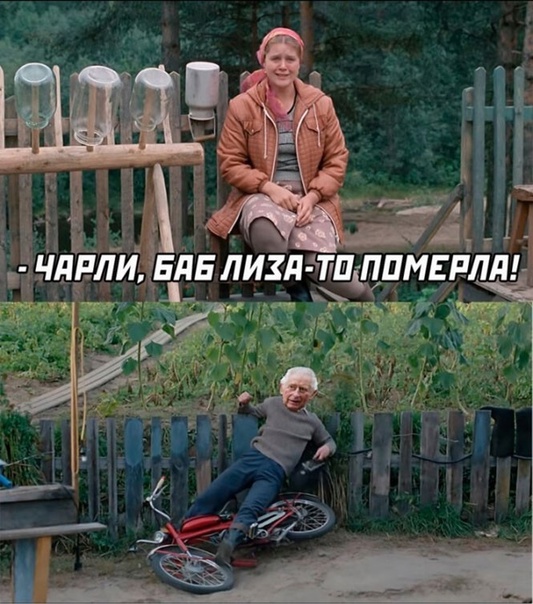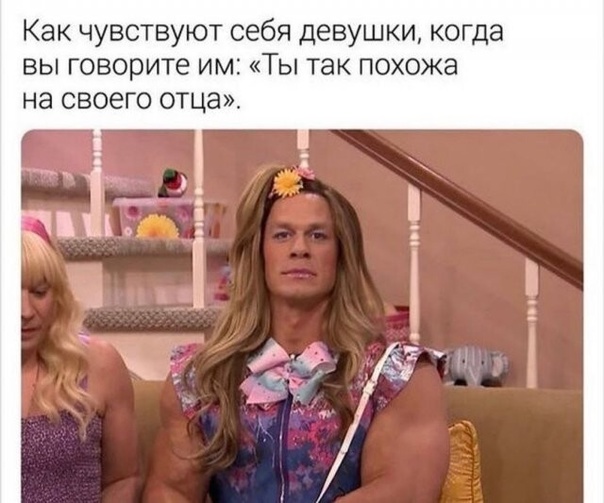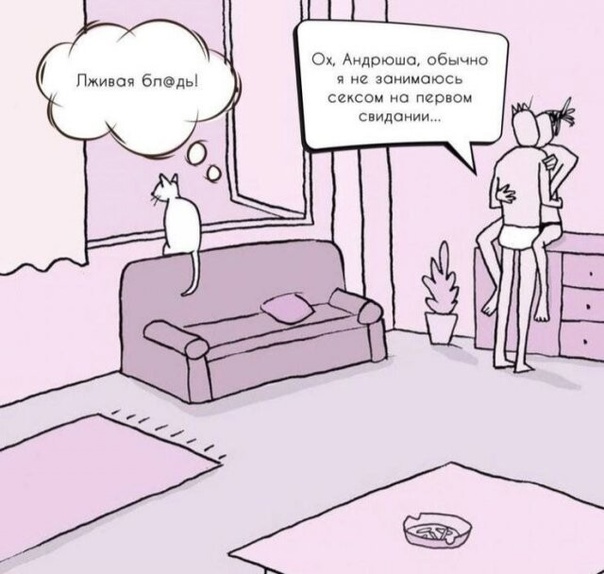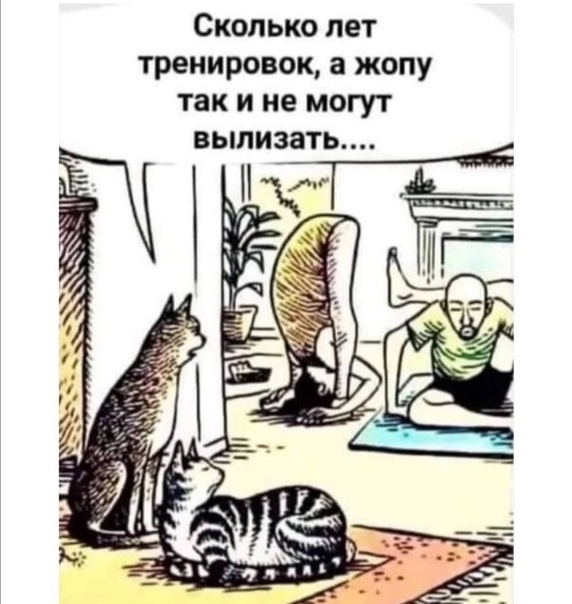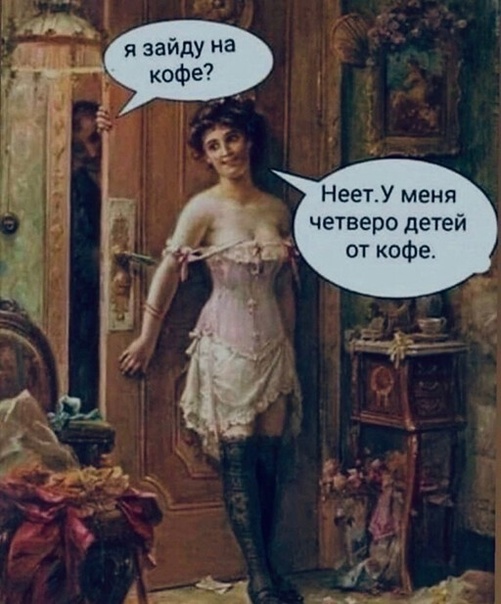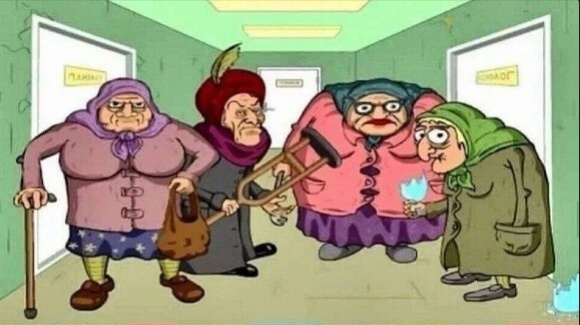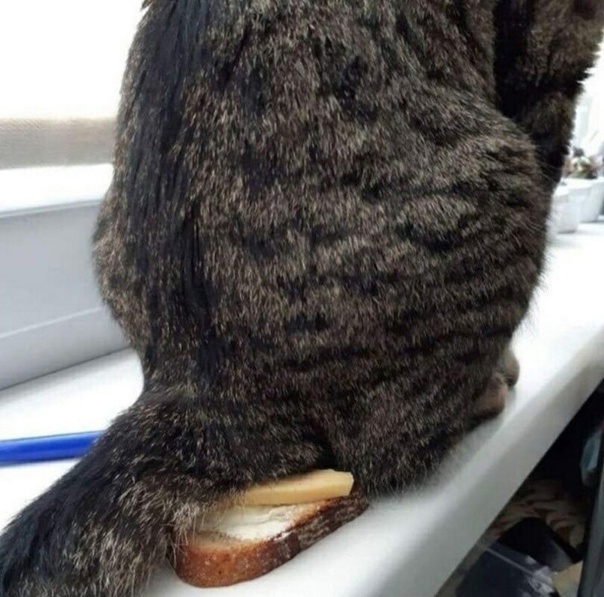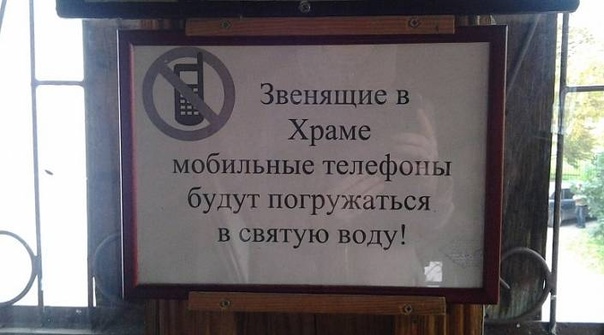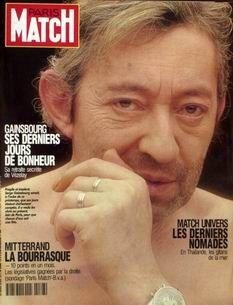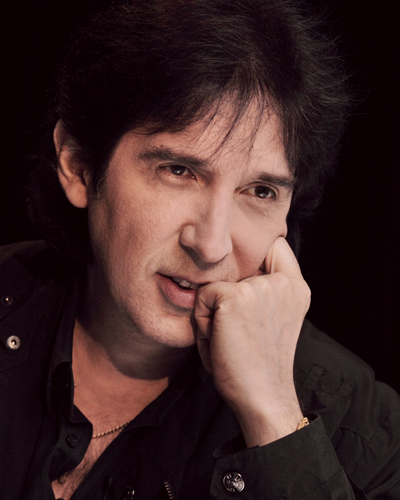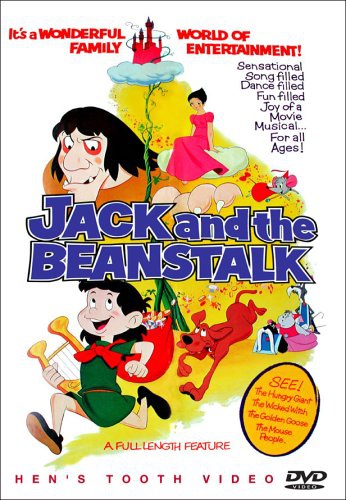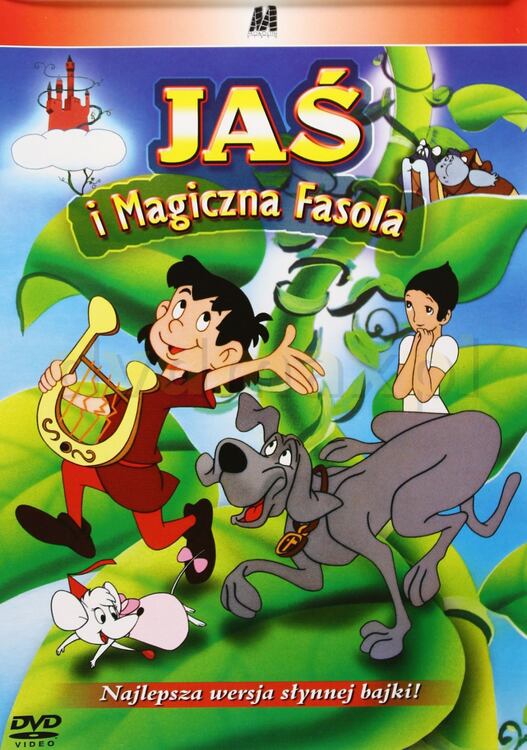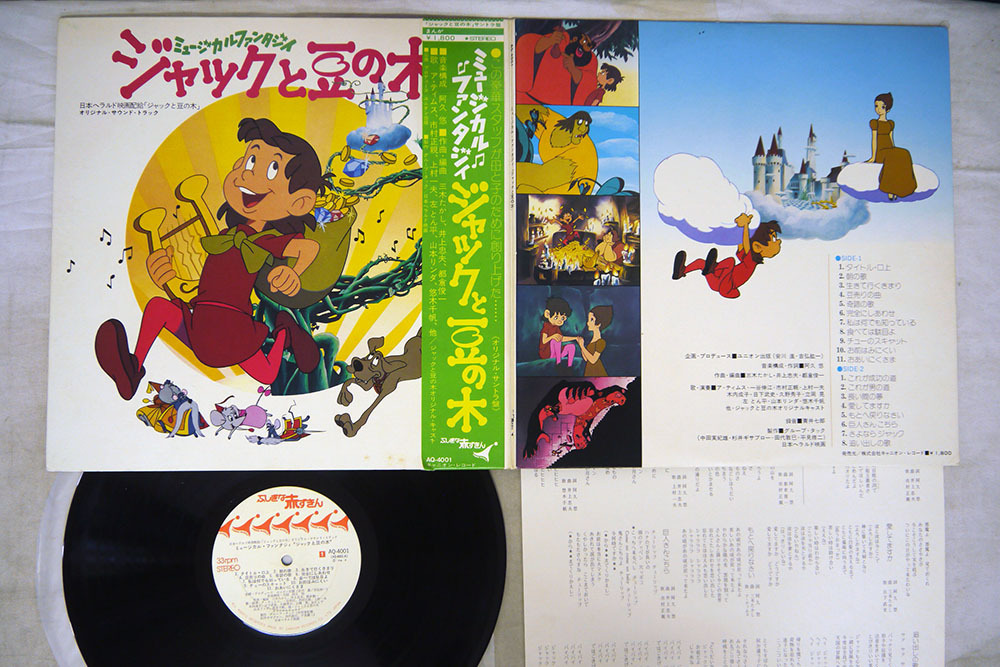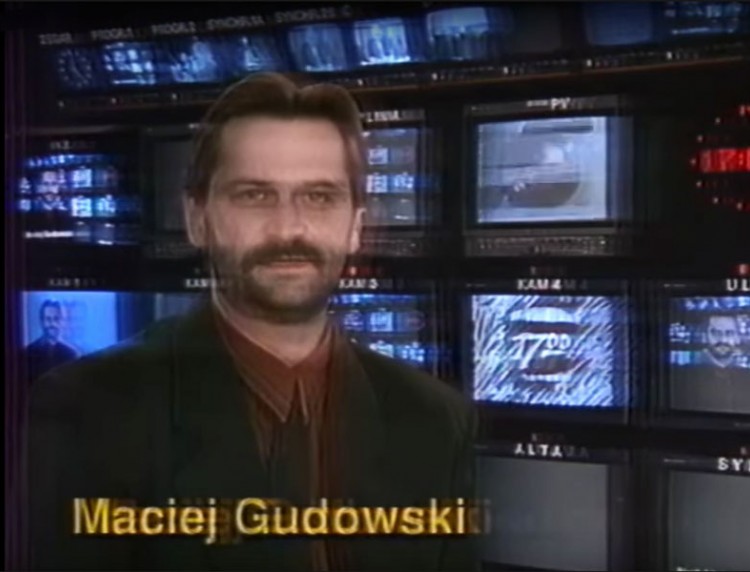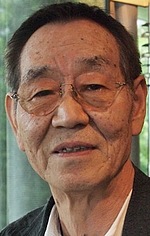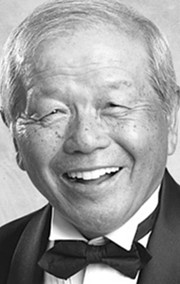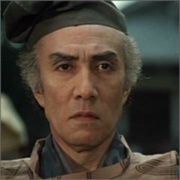-
Postów
1 409 -
Dołączył
-
Ostatnia wizyta
Treść opublikowana przez Andrew Alexandre Owie
-

JJ - JUST JOKES TYLKO ŹARTY
Andrew Alexandre Owie odpowiedział(a) na Andrew Alexandre Owie utwór w Satyra
Gosh, the side view of the gentleman's face glimpsed in the left margin of the frame from the quoted movie Scandal's nightclub scene reminded me a lot of Prince Charles, now King Charles III. Is it him in 1989? O rany, widok z boku twarzy dżentelmena na lewym marginesie kadru z zacytowanego filmu "Skandal", ta scena w nocnym klubie, bardzo przypominał mi książa Karola, teraz Króla Karola III. Czy to on w 1989 r.? LYRICS - CABARET SONGS Songwriter Bob Meryll SHE WEARS RED FEATHERS... Chorus She wears red feathers And a huly huly skirt She wears red feathers And a huly huly skirt She lives on just cocynuts And fish from the sea A rose in her hair A gleam in her eyes And love in her heart for me I work’d in a London bank Respectable position From nine to three they serve you tea But ruin your disposiishun Each night in the Music Hall Travelogs I’d see And once a pearl of a native girl Kept smilin’ right at me Goodbye to the London bank I started in a sailin’ The fourteenth day from Mandalay I spied her from the raailin’ She knew I was on my way Waited and was true She said, “You son of an Englishmon I’ve dreamed each night of you I went to her ma and pa And said I loved her only And they both said we could be wed Oh, what a ceremoony An elephant brought her in Placed her by my side While six baboons got out bassoons And played “Here comes the bride”*) I’m back in London town And tho’ it may sound silly She’s here with me and you should see Us walk down Piccadiilly The boys at the London bank Kind o’ hold their breath She sits with me and sips her tea Which tickles them to death <1952> *) “Here comes the bride” (The Girl Who Stole My Lovin’ Man Away). Words by Lew Brown. Music by Albert Von Tilzer *** Songwriter J.P. Richardson (aka The Big Bopper) RUNNING BEAR On the bank of the river stood Running Bear, young Indian brave On the other side of the river stood his lovely Indian maid Little White Dove was her name, such a lovely sight to see But their tribes fought with each other, so their love could never be Running Bear loved Little White Dove With a love big as the sky Running Bear loved Little White Dove With a love that couldn't die He couldn't swim the raging river 'cause the river was too wide He couldn't reach the Little White Dove waiting on the other side In the moonlight he could see her throwing kisses 'cross the waves Her little heart was beating faster waiting for her Indian brave Running Bear loved Little White Dove With a love big as the sky Running Bear loved Little White Dove With a love that couldn't die Running Bear dove in the water, Little White Dove did the same And they swam out to each other through the swirling stream they came As their hands touched and their lips met, the raging river pulled them down Now they'll always be together in their happy hunting ground Running Bear loved Little White Dove With a love big as the sky Running Bear loved Little White Dove With a love that couldn't die <1959> A rather funny and lovely mixture of Longfellow's The Song of Hiawatha and Shakespeare's Romeo and Juliet! Raczej zabawna i miła mieszanka Pieśni o Hiawacie przez Longfellowa i Romea i Julii przez Szekspira! -

JJ - JUST JOKES TYLKO ŹARTY
Andrew Alexandre Owie odpowiedział(a) na Andrew Alexandre Owie utwór w Satyra
"Szpilki", "Przekrój" forever! "Szpilki", "Przekrój" na zawsze! -

JJ - JUST JOKES TYLKO ŹARTY
Andrew Alexandre Owie odpowiedział(a) na Andrew Alexandre Owie utwór w Satyra
@Andrew Alexandre Owie That commercial, a job interview, is a satire, and it is so interesting that I haven't thought it to be the ad. It's but a fire though it's about water. Ta reklama, rozmowa o pracę, to satyra i jest tak interesująca, że nie myślałem, że to będzie reklama. To tylko ogień, choć dotyczy wody. *** Delight was all mine too! Był zachwycony też! *** you'd better find the original) it must have been an American short film lepiej znajdź oryginał) chyba był to amerykański film krótkometrażowy *** It took 40 years of acquaintance with the best Western advertising before creative commercials began to appear in our country too, albeit still in single copies. Minęło 40 lat oddziaływania najlepszych zachodnich reklam, zanim zaczęły pojawiać się tutaj także kreatywne reklamy, choć wciąż w pojedynczych przykładach. *** An honest interview. Especially its end. Szczera rozmowa. Zwłaszcza jej koniec. 😃😆 *** Life's situation. Honestly, free, and most importantly truthfully. Sytuacja życiowa. Uczciwie, wolnie i co najważniejsze prawdziwie. *** True to life, yeah. Unless the fact that those fucking interviews are being conducted by the bosses' mistresses. Film wierny życiu, to tak. Pomijając, źe tę pieprzone rozmowy przeprowadzają kochanki szefów. *** The only commercial that tells the truth. If everyone had been so frank, life would have been easier. Jedyna reklama, która mówi prawdę. Gdyby wszyscy byli tak szczerzy, życie byłoby łatwiejsze. *** Well, actually, this is a harsh reality, both water and people nowadays are far from spring purity, so everything needs to be filtered, both water and words) Filter the words, the right guys always knew this! Cóż, taka jest to trudna rzeczywistość, zarówno woda, jak i ludzie w dzisiejszych czasach są dalecy od wiosennej czystości, więc wszystko musi być filtrowane, zarówno woda, jak i słowa) Filtruj słowa, właściwi faceci zawsze o tym wiedzieli! *** Splendid! People removed their masks! Świetnie, ludzie bez masek! *** 70% match how my job interview was being gone. 70% zgadza się z przebiegiem mojej rozmowy o pracę. -
JJ - JUST JOKES TYLKO ŹARTY In the 80s, Barbie had got high heels, mini skirt, big breasts and long hair. Now it is Ken who has got it all. W latach 80. Barbie miała szpilki, mini spódniczkę, duże piersi i długie włosy. Teraz to wszystko ma Ken. *** The foreman of an elite apartment renovation team to the wealthy metropolitan female customer: -Here, look, ma'am, make sure everything's as we'd agreed, everything's beautiful, everything's on time. Female customer: -Even so I can't help but wonder where the column capitel is? Ossetian worker in Ossetian to his countryman: What is she talking about? The latter one: No idea! Foreman: It's here... somewhere... I guess. The Tuvinian worker in Tuvan to himself: I wish I could know what you are talking about. Foreman to the female customer: What are you talking about? Female customer: The column capital. The top part of the pilaster. Ossetian worker in Ossetian to his countryman: What is it? The latter shrugs in response. Foreman: -Pilaster-pilaster. Female customer: -But that's just that fucking terrible thing! Ossetian worker: Oh, that's but that fucking terrible thing... ! Female customer happily: Yes, it is! Ossetian workers to each other 'l in chorus: Aital has got this fucking terrible thing. To their Tuvinian colleague : Aital, where is that fucking thing? Tuvinian with the column capital in his hands: Oh! Here it is! That very fucking terrible thing! VOICE-OVER: The peoples of Russia speak 277 languages and dialects... Aital: -But the Russian will always understand one other. (But the Russian always speak the same tongue). THE END Majster ekipy remontów mieszkań elitarnych w metropolii do zamożnej klientki: -Proszę spojrzeć, pani, wszystko jest tak jak było umówione, wszystko jest piękne, wszystko jest na czas. Klientka: -W takim razie nie zrozumiałam, gdzie jest kapitel? Robotnik osetyński po osetyjsku do swojego rodaka: O co chodzi? Ten ostatni: Nie wiem. Majster: -Ona jest gdzieś tu ... chyba. Robotnik z Tuwy, po Tuwińsku do siebie: Nie mam pojęcia, o czym wszyscy mówią. Majster do klientki: -O czym pani mówi? Klientka: -Kapitel. Wierzchołek pilastra. Robotnik osetyński po osetyjsku do swojego rodaka: Co to jest? Ten ostatni w odpowiedzi wzrusza ramionami. Majster: -Pilastr-pilastr. Klientka: -Ale to kurwa po prostu ta chujnia. [tu chujnia to wihajster] Robotnik osetyński: Ale to tylko jest ta chujnia! Osetyjczyk do Osetyjczyka razem: Aitał ma ją. Do Tuwańczyka: Aitałe, gdzie jest ta chujnia? Aitał: Och! Oto gdzie jest.. Ta chujnia! GŁOS zza kadru: Narody Rosji mówią 277 językami i dialektami... Aitał: -Ale Rosjanie zawsze się wzajemnie rozumieją! (Ale Rosjanie zawsze mówią tym samym językiem). KONIEC *** There are good people. There are no good organizations. Są dobrzy ludzie. Ale nie ma dobrych organizacji. *** MORONISTAN -Halt! Speak the password! -Password! -Pass forth! DEBILISTAN -Postój! Podaj hasło! -Hasło! -Przechodź dalej! *** WHEN A PART IS GREATER THAN THE WHOLE If to put a tablespoon of shit in a barrel of honey, there will be a barrel of shit. KIEDY CZĘŚĆ JEST WIĘKSZA OD CAŁOŚCI Jeśli włożyć łyżkę gówna do beczki z miodem, będzie beczka gówna. *** Charlie, you haven't yet learned it, but granny Lisa has already bought the farm! Karolku, o tym jeszcze nie wiesz, ale babcia Liza już trzasnąła w kalendarz! *** CALL IT FRIENDSHIP If you are cold, I can eat you up! JAK KUMPELKI Jeśli jest ci zimno, mogę cię zjeść! *** TikTok is like just custom-made for me! TikTok jest jak dla mnie stworzony! *** APHROMASK -Tell me, doesn't the gas mask interfere with your sexual life? -Just on the contrary. Firstly, my wife is silent in it. Secondly, I can't see her face anymore. And thirdly, when I close the valve, she at last starts to move at least a little. AFROMASKA* -Powiedz mi, czy maska gazowa nie koliduje z twoim życiem seksualnym? -Wręcz przeciwnie. Po pierwsze, milczy w tym moja żona. Po drugie, więcej nie widzę jej twarzy. I po trzecie, kiedy zamykam zawór, ona w końcu zaczyna się przynajmniej trochę ruszać. *Afrodyzjak *** At last all your whores gonna get burnt! Nareszcie wszystkie twoje kurwy spłoną! *** It's boring at home, it's expensive outdoors. W domu jest nudno, i na dworze jest drogo. *** -Ah, Andryusha, usually I don't have sex on the first date. Pussy Cat: What a lying bitch, man. -Ach, Andriusza, zwykle nie uprawiam seksu na pierwszej randce. Kotka: A to kłamliwa suka! *** A lot of likes, little money and nowhere to go on a visit. Dużo lajków, mało pieniędzy i nie ma dokąd pójść na wizytę. *** Cats: "So many years of training, but they still fail to lick clean their arse holes!" Koty: "Tyle lat treningu, ale wciąż nie mogą wylizać swoich dup". *** Catherine has realized that there was something Royal about her. She had got Peter, who was the First, Nicholas, who was the Second, and Alexandre, who was the Third. Katarzyna zdawała sobie sprawę, że było w niej coś królewskiego. Miała Piotra, który był Pierwszym, Mikołaja, który był Drugim i Aleksandra, który był Trzecim. *** The way girls feel when you tell them: "You look so much like your father!" Jak dziewczyny się czują, kiedy mówisz im: "Jesteś taka podobna do swojego ojca!" *** A Job Interview. Na rozmowie kwalifikacyjnej. PERSONNEL OFFICE. BIURO KADR -Good day! -Część! -Good day! Have a seat. I really hoped that you would not come, and I would not have to waste time on you. Due to sheer courtesy, gonna ask you, "How did you get there?" -Cześć. Proszę usiąść. Naprawdę miałem nadzieję, że pan nie przyjdzie, żebym nie musiał marnować na pana czasu. Z czystej uprzejmości zapytam, jak pan aż tutaj dotarł? -Shocking, your office is in the middle of bumfuck nowhere, and I have completely regretted my coming here. -Okropnie. Wasze pieprzone biuro jest równo gdzie pieprz rośnie, a ja już całkowicie żałowałem, że tu przyszłem. -Well, what is, is. Also due to pure courtesy, gonna offer you a glass of water. -Cóż, jest jak jest. To prawda. Również z czystej uprzejmości zaproponuję panu szklankę wody. -Thanx a lot. But I feel like going for a stronger drink. -Wielkie dzięki. Ale lepiej... chętnie bym przyjał pańskie zaproszenie na drinka. -Olga, baby, fetch some water. -Olgo, skarbie, przynieś trochę wody. -Aye, Mister Seven Centimetres (Mister Three Inches). -Tak jest, Panie Siedem Centymetrów. (Panie Trzy Całe) -Wow! -No proszę... Ojej! -My mistress! So, do you really mean to work for us? -Moja kochanka. Więc czy naprawdę chcesz z nami współpracować? -Of course not! I just want to make a lot of money, while doing nothing. -Oczywiście nie! Chcę tylko zarabiać dużo pieniędzy i nic nie robić. Guy Mitchell sings "She wears red feathers and a huly-huly skirt..." (1952), which contains the words "I worked in a London Bank, respectable position...". Guy Mitchell śpiewa "Ona nosi czerwone pióra i spódnicę huli-huli..." (1953), w której znajdują się słowa "Pracowałem w londyńskim banku, szanowana pozycja...". -Oh, that's my own occupation. Luckily, it was me who'd taken this position first. To be honest, gonna give up on you. Your face is terribly infuriating me, so lemme go over the basic formalities in brief. Your strengths? -O, to jest mojе miejsce pracy, i na szczęście jest już zajętо. Szczerze mówiąc, już postawiłem krzyżyk na pańskiej karierze. Pan ma twarz, która jest strasznie irytująca i mnie wkurza, więc szybko przejdźmy przez podstawowe formalności. Twoje mocne strony. -I haven't got any at all. I am absolutely incompetent, but I can perfectly simulate intense activities. Oh, another thing, my habit of drunk-doing a salto mortale [of going and getting into troubles] in the office. -W ogóle ich nie mam. Jestem zupełną przeciętnością, ale jakościowo simuluję aktywność. I jeszcze coś... Pijackie pokazuję salta mortale [wystawiam łeb do odstrzału] w biurze. -Why did you leave your previous position? -Dlaczego odszedłeś z poprzedniego miejsca? -Fired for missing work, stealing a printer and fist-fighting with a charlady. -Zwolniony za wagary, kradzież drukarki i z powodu bójki z sprzątaczką. -Well, here's the last question. Where do you see yourself in five years? -Cóż, ostatnie pytanie. Gdzie widzisz siebie za pięć lat? -Ha-ha! Do not ask me! Do I really seem a lady fortune-teller? -Ha ha! Skąd mam to wiedzieć. Czy wyglądam jak wróżka? -Well, fine anyway. At last we've completed those formalities. I am glad to inform you, Sir, that you are not a good fit for us. We'll never ever call you back. Best regards. You gonna be escorted to the door, while I am being awaited by notifications on my Facebook. -Cóż, to świetnie. W końcu z tym skończyliśmy. Z przyjemnością informuję: nie nadajesz się do nas. Na pewno nie oddzwonimy panu. Powodzenia. Teraz odprowadzą pana do drzwi, podczas gdy na mnie czekają powiadomienia na Facebook'u. "She wears red feathers, and a huly huly skirt" by Bob Merryl sung by Vancha March przez Boba Merryl'a, śpiewana przez Vancha March'ego -Thanx a lot. It was not nice to meet you. I wish you every failure. By the way, I haven't washed my hand after visiting your loo. Wielkie dzięki. Bardzo nieprzyjemnie było cię poznać. Życzę panu zła. Swoją drogą, nie umyłem rąk po wyjściu z toalety. -By the way, you helped yourself to the tap water from there. -Swoją drogą, nalałem panu wodę z kranu w toalece. -Ha-ha-ha! Advertising slogan. Hasło reklamowe. "Filter your words, filter your water!" "Filtruj swoje słowa, filtruj wodę!" BARRIER Co. Ltd. Water filters. Firma "BARIERA" Sp. z o.o. Filtry do wody. *** Сats: -Who do we come from? -Of course, from the great lions. -And Natasha, our mistress? -From a monkey. -God, what a shame! Koty: -Od kogo pochodzimy? -Oczywiście od wielkich lwów. -A Natasza, nasza właścicielka? -Od małpy. -Boże, co za wstyd. *** Whoressan, 35 roubles a piece. Kurwassan, 35 rubli za sztukę. *** MOTHERS, WIVES AND DARLINGS I do love my mother, and I do respect all my ex-wives and, possibly, the future ones. MATKI, ŻONY I KOCHANKI Bardzo kocham moją matkę i bardzo szanuję wszystkie moje byłe żony i być może przyszłe. *** Europe 2022: We are not in the same boat. We are in the same storm. All our European boats are different. Europa w 2022 r.: Nie jesteśmy w tej samej łodzi. Jesteśmy w tej samej burzy. Wszystkie nasze europejskie łodzie są inne. *** I used to suffer from fear of the dark. But yesterday I received my utility bills. Now I suffer from fear of electric light, water and especially heating. Kiedyś cierpiałem z powodu strachu przed ciemnością. Ale wczoraj otrzymałem rachunki do zapłacenia za media. Teraz boję się światła elektrycznego, wody, a zwłaszcza ogrzewania. *** THE BABY ELEPHANT WALK -Daddy, let the baby elephants run one more time. -Baby elephants are tired, mija. -Daddy, just one, the very last time. -All right. One more, but last time. Company, form up column! Put on your gas masks! Forward, run! SPACER SŁONIĄTKA -Tato, pozwól słoniczkom jeszcze trochę pobiegać. -Słoniątka są zmęczone, córeczko. -Tato, to tylko jeden, ostatni raz. -Okej, tylko jeden, ale ostatni raz. -Rota, utworżyć kolumnę! Włożyć maski przeciwgazowe. Naprzód, biegiem! The Baby Elephant Walk by Henry Mancini. By the brass band "AcademBrass" of the music school #10, Novosibirsk, Siberia. Music leader and conductor Dmitry Slatvinsky. "Spacer słoniątka" przez Henryka Mancini'ego. Orkiestra dęta "AcademBrass" szkoły muzycznej nr 10, Nowosybirsk, Syberia. Lider muzyczny i dyrygent Dmitrij Słatwiński. *** THE LUV POTION -Can I come in for a cup of coffee with you? -Thank you, but I've had enough. I have got four children due to coffee! ELIKSIR MIŁOŚCI -Czy mogę wpaść do ciebie na kawę? -Dziękuję, ale nie. Mam już czworo dzieci z kawy. *** With a cup of Nescafe our secret thoughts turn into desires ... and with a bottle of whiskey into actions ... Z filiżanką Nescafe nasi sekretne myśli zamieniają się w pragnienia... A z butelką whisky w działania... *** Autumn. After resting and getting back their strength and health on their countryside vegetable gardens, female pensioners return to the polyclinics. Jesień. Po odpoczynku i nabraniu sił i zdrowia na swoich zamiejskich działkach ogrodowych, moherowe berecy wracają do poliklinik. *** Next time try to catch hold of my hands! Następnym razem spróbuj złapać mnie za ręce! *** -Actually the Earth is flat. It's simply stretched over a sphere. Elon Musk: QED!* *quod erat demonstrandum this completes the proof, hence proved -W rzeczywistości Ziemia jest płaska. Jest po prostu rozciągnięta na kuli. Elon Musk: QED!* *quod erat demonstrandum co kończy dowód *** Get yourself a boyfriend, Tasha! Utrzymaj sobie faceta, Nataszo! *** -Where did you learn to tap dance? -In my family! Just fancy, morning, 15 kids and just one potty. -Gdzie nauczyłeś się stepować? -W mojej rodzinie! Tylko wyobraźcie sobie: rano, 15 dzieci i tylko jeden nocnik. *** On the fourth day Quick-eyed Falcon noticed that the barn where they were locked hadn't had got the fourth wall. The song "Running Bear", 1959, being accompanied by the goofy unforgettable Native American chant of "Ooga chaka, hooga hooga//Ooga chaka, hooga hooga…", as it was revived in a scene of the 1989 movie "Scandal". The ditty about the girl Little White Dove sung by Ray Gelato. Piosenka "Running Bear" ("Biegnący Niedźwiedź"), 1959 r., której towarzyszy niezapomniany chór Indianinów "Uga ciaka, uga uga//Uga ciaka, uga uga…", wskrzeszona w scenie z filmu "Skandal" 1989 roku. Piosenka o dziewczynce Little White Dove ("Biała gołębica") śpiewana przez Ray'a Gelato'ego. Czwartego dnia Sokoł Bystre Oko zauważył, że stodoła, w której byli zamknięci, nie miała czwartej ściany. "Running Bear" by J.P. Richardson nicknamed The Big Bopper sung by Johnny Preston in 1959. "Running Bear". Kompozytor J.P. Richardson wel The Big Bopper. Piosenka zaśpiewana przez Johnny'ego Preston'a w 1959 r. *** IN A HOUSE OF GOD Smartphones ringing in the temple will be immersed in holy water. W DOMU BOŻYM Telefony dzwoniące w świątyni zostaną zanurzone w wodzie święconej. *** BELATED INSIGHT Finally, I understood what meant to be adult. It's when everything hurts all the time, you're short of money, and can’t see your friends due to much work, let alone you have to go shopping all the time. And around me there are some adult uncles and aunts who, for some reason, are the same age as is that of mine. SPÓŻNIONA MĄDROŚĆ Wreszcie zrozumiałem, co to znaczy być dorosłym. To wtedy, gdy wszystko cały czas boli, brakuje Ci pieniędzy i nie możesz widywać się ze znajomymi z powodu dużej pracy, nie mówiąc już o tym, że musisz cały czas chodzić na zakupy. A wokół są niejaki dorosły wujki i ciotki, którzy z jakiegoś powodu są w tym samym wieku co ja. *** -Describe your dress in English, please! -Made in China! THE END KONIEC
-
Serge Gainsbourg and his songs had been mentioned by me in several posts before. Serge Gainsbourg i jego piosenki były już przeze mnie wspomniane w kilku postach. See below references Zobacz odnośniki do nich poniżej: 1. Serge Gainsbourg's song "Elaeudanla Teïtéïa" Piosenka "Elaeudanla Teïtéïa" 2. "L'accordéon" (The Accordion). Sung by Serge Gainsbourg & Philippe Clay. Piosenka "L'accordéon" ("Akordeon") śpiewana przez Serge'a Gainsbourg'a i Philippe'a Clay'a. 3. "L'aquoibiniste" by Serge Gainsbourg. Sung by Jane Birkin. "L'aquoibiniste" przez Serge'a Gainsbourga. Śpiewane przez Jane Birkin. 4. Serge Gainsbourg on Europe 1 song "Vieille Vals (Dans le bois voisin du front)" in Russian. Serge Gainsbourg dla Europe 1 piosenka "Vieille Vals (Dans le bois voisin du front)" po rosyjsku. 5. Serge Gainsbourg la chanson L'Helicoptere pour Mireille Darc. Serge Gainsbourg piosenka "Śmigłowiec" dla Mireille Darc 6. Serge Gainsbourg HARLEY DAVIDSON pour Brigitte Bardot. Serge Gainsbourg piosenka HARLEY DAVIDSON dla Brigitte Bardot 7. Le Poinçonneur des Lilas par Serge Gaisbourg Poinçonneur des Lilas przez Serge'a Gainsbourg'a Gainsbourg singing in his flat Gainsbourg śpiewa w swoim mieszkaniu
-
My short story in Arkadiy Averchenko-style Moje opowiadanie w stylu Arkadija Awierczenko THE ELEGY (THE LAMENT FOR NATIONALITY) ELEGIA (LAMENT ZA NARODOWOŚCIĄ) Maybe a little on Gainsbourg? Actually, Gainsbourg is Ginzburg. It's easy to remember as it's a rare name! Once upon a time I, then a wonderfully young fella, sat in the waiting room of a Russian regional newspaper and read the article on Gainsbourg in the Paris-Match magazine. Next to me there sat, also waiting for the meeting with the editor-in-chief elderly columnist Bobtail. Może trochę o Gainsbourgu? Właściwie Gainsbourg to Ginzburg. Łatwo zapamiętać, ponieważ to rzadkie imię! Kiedyś ja, wtedy cudownie młody chłopak, siedziałem w poczekalni rosyjskiej gazety regionalnej i czytałem artykuł o Gainsbourgu w czasopiśmie "Paris-Match". Obok mnie siedział, również czekając na spotkanie z redaktorem naczelnym starszy felietonista Kucyk. He asked me: "Who's is that man?" My answer was, -Gainsbourg in person, someone like your Russian bard Vysotsky, but of much higher class as a musician. Both national geniuses successfully ruined themselves by drinking strong liquors. Then I grabbed my poor listener by the button of his jacket and, hotly breathing into his face, as if a true conspirator, сonfidentially whispered: "Actually, his name was not Gainsbourg, but Ginzburg!" Bobtail moved back trying to break free, recoiled and frowned. After that innocent chat our relations became more formal. Valery "Bobtail" Ginzburg Walery "Kucyk" Ginzburg Zapytał mnie: "Kim jest ten człowiek?" Moja odpowiedź brzmiała: -Gainsbourg osobiście, ktoś taki jak wasz rosyjski bard Wysocki, ale o wiele wyższej klasy jako muzyk. Obaj geniusze narodowi skutecznie zrujnowali się pijąc mocne trunki. Potem chwyciłem mojego biednego słuchacza za guzik marynarki i, żarliwie oddychając mu w twarz, jak prawdziwy spiskowiec, poufnie szepnąłem: "Właściwie nie nazywał się Gainsbourg, lecz Ginzburg!” Kucyk cofnął się, próbując się wyrwać, i zmarszczył brwi. Po tej niewinnej rozmowie nasze stosunki stały się bardziej formalne. I couldn't figure out why. But the matter was that "Bobtail" had just been a pen name which in a long run replaced the columnist's real family name, which was ... Ginzburg. The man thought I had needled him. In fact, however, it worked a great principle "Two hemispheres - two Shapiros!", but, unfortunately for me, Bobtail was not aware of its existence. Nie wiedziałem dlaczego. Ale chodziło o to, że "Kucyk" był po prostu pseudonimem, który na dłuższą metę zastąpił prawdziwe nazwisko felietonisty, którym było… Ginzburg. Ten człowiek myślał, że go zadrwiłem. Faktycznie jednak działała znakomicie zasada "Każda półkulka ma swego Ginzburgka!”, ale niestety dla mnie Kucyk nie był świadomy jej istnienia. Serge Gainsbourg Since then I have become cautious, because realized that a blond beast could turn out to be a Muslem Turk or a Protestant Jew, and a woggish boy could be a Don Cossack and a Caucasian. Od tego czasu stałem się ostrożny, ponieważ zdałem sobie sprawę, że blond bestia może okazać się muzułmańskim Turkiem lub protestanckim Żydem, a ten kokos, czyli bambuś może być kozakiem dońskim i nawet białym człowiekiem. With a blond girl with blue eyes, a salesperson, we'd been talking about the current Great Migrations of Peoples (Völkerwanderung) and predominance of a number of nationalities in the various areas almost for an hour. I was not shy about some "compliments" for Armenians, but at the end of our chat there came in her red-haired dad, and she addressed him in Armenian. Z blondynką o niebieskich oczach, sprzedawczynią, rozmawialiśmy prawie przez godzinę o aktualnych wielkich wędrówkach ludów (Völkerwanderung) i dominacji niektórych narodowości w różnych obszarach. Nie poskąpiłem na jakichś "komplementów" dla Ormian, ale pod koniec naszej rozmowy wszedł jej rudowłosy tata i zwróciła się do niego po ormiańsku. Or, behold, they told me that those persons were Americans, and on the first pass I was liberal in my praise for the United States, not letting them open their mouths and forging an American accent. The more I was trying my best, the more their faces were becoming longer. At long last they opened their mouths, and it was the British rather than American speech that burst out. Once again I felt like sitting down in the cesspool! Albo, oto powiedzieli mi, że te osoby są Amerykanami i prosto z most, z kopyta rozdał wiele pochwał Stanam Zjednoczonym, nie pozwalając im otwierać ust i fałszując amerykański akcent. Im bardziej się starałem, tym bardziej ich gęby wyciągali się. W końcu otworzyli usta i wybuchła mowa brytyjska, a nie amerykańska. Po raz kolejny zesrałem się: wpadł w tarapaty i ośmieszył się. Since then I have become a model diplomat and a perfect gentleman and an excellent, first-rate hypocrite. Now I watch my mouth, carefully ask around and find out everything in advance, because a black person's mother tongue can occur to be Ukrainian, and that of a Vietnamese can happen to be Czech. Od tego czasu stałem się wzorowym dyplomatą, doskonałym dżentelmenem i idealnym, pierwszorzędnym hipokrytą. Teraz przyglądam się ustom, uważnie rozpytuję i dowiaduję się wszystkiego zawczasu, bo język ojczysty czarnoskórego może być ukraiński, a Wietnamczyka może być czeski. Probably, soon the Russians will live in China and speak Chinese, and the Chinese will live in Russia and speak Russian. At the same time, everyone of them will remain patriots, but of what? Country, nationality, language, culture? Prawdopodobnie wkrótce Rosjanie będą mieszkać w Chinach i mówić po chińsku, a Chińczycy będą mieszkać w Rosji i mówić po rosyjsku. Jednocześnie wszyscy pozostaną patriotami, ale czego? Kraju, narodowości, języka, kulturzy? Who are we, what are we? Soon we will start assigning the distinctive features to ourselves, choosing by our own will or fad our mother tongues, nationalities and countries, and with the further successes of genetics and augmented reality, we'll even start choosing any appearance, changing all in us in accordance either with the current fashion or our personal preferences. But it's sad only. So sad indeed. Not the world, but kinda outer space where there is not clear where is up or down, where is the left or right side. Won't it lead to the general alienation? Won't we all have to switch to the Universal, international Hungarian language, which has got the special grammatical cases for the things that are positioned lower, higher, forward and behind? Kim jesteśmy, czym jesteśmy? Już niedługo zaczniemy przypisywać sobie charakterystyczne cechy, wybierając z własnej woli lub głupoty języki ojczyste, narodowości i kraje, a wraz z kolejnymi sukcesami genetyki i rzeczywistości rozszerzonej zaczniemy nawet wybierać dowolny wygląd, zmieniając wszystko w nas zgodnie z panującą modą lub naszymi osobistymi preferencjami. Ale to tylko smutne. Bardzo smutne. Nie świat, ale rodzaj kosmosu, w którym nie wiadomo, gdzie jest góra, a gdzie dół, gdzie jest lewa czy prawa strona. Czy nie doprowadzi nas to do ogólnej alienacji? Czy nie będziemy musieli wszyscy przejść na uniwersalny, międzynarodowy język węgierski, który ma specjalne przypadki gramatyczne dla rzeczy umieszczonych niżej, wyżej, z przodu i z tyłu? In connection with this I've remembered the lines by the Russian poet Sergei Yesenin W związku z tym przypomniałem sobie słowa rosyjskiego poety Siergieja Jesienina: Who am I? And what? I'm just a dreamer Groping for the ring of happiness from birth, I live present life as if an ill-timed era Altogether with all others in the Earth. Kim jestem? Czym jestem? Tylko marzycielem Pierścień szczęścia szukającym w ciemności, Żyję tym życiem jakby przy okazji, Razem z innymi na ziemi. As to Serge Gainsbourg, Co do Serge'a Gainsbourga, I love big-eared Serge Gainsbourg! It seems he's Russian de nature. Mam łasy na uszatego Gainsbourg'a. Jest Rosjaninem z natury. IN THE GINZBURGS MEMORIAM W PAMIĘCI GINZBURGÓW Louis Gallet & Jules Émile Frédéric Massenet's Élégie (Ô, doux printemps d’autrefois) sung by Feodor Chaliapin in Russian (Russian lyrics by M-me Alexandra Santagano-Gorchakova, born von Mensenkampff). Élégie (Ô, doux printemps d’autrefois) przez Louis'a Gallet'a & Jules'a Émile'a Frédérica Massenet'a śpiewana przez Fiodora Chalapina po rosyjsku (tekst rosyjski przez M-me Aleksandra Santagano-Gorciakowa, ur. von Mensenkampff). Marie Laforet singing her `Boris Ivan ...` . Gainsbourg is among her dancers! Marie Laforet śpiewa jej "Borys Ivan...". Gainsbourg jest wśród jej tancerzy! Did you notice the look ("What's the hell are you doing here?") Gainsbourg gave the girl in ribbons, the one that while dancing twixt the matryoshkas jumped towards him? It is just a walk-in role, but he plays it seriously. That very way later he also initially "accepted" the young Jane Birkin. Terribly choosy was that abortion. But, actually, it was his defensive reaction. He was probably afraid of being rejected and put on a mask of "haughtiness". Czy zauważyliście spojrzenie ("Dlaczego tu przylazłaś?"), którym Gainsbourg obdarzył dziewczynę ze wstążkami, która przeskoczyła między matrioszkami w jego kierunku? Wydawałoby się, że to rola epizodyczna, ale gra to poważnie. W ten samy sposób on też początkowo "zaakceptował" młodą Jane Birkin. Strasznie czytelnym był "wacusiem". Ale tak naprawdę to była jego reakcja obronna. Prawdopodobnie bał się odrzucenia i przywdział maskę "wyniosłości".
-
Ma perche? But why? Sung by Adriano Celentano. Ale dlaczego? Śpiew przez Adriana Celentano Come on, confess, my love, That I am not the only one for you. In your heart, you concealed The irrevocable story. Su confessa amore mio io non sono piu il solo, l'unico hai nascosto nel cuore tuo una storia irrinunciabile Chodź, wyznaj, kochanie, Że jestem nie jedyny dla Ciebie. W twoim sercu ukryłaś Historia, której nie można zwrócić. CHORUS I am no longer present in your thoughts. Now it is not me who is your true love I am bitter sweetness, Which you no longer eat. But why are you the other woman? But why are you no longer you? Why haven't you told me at once That the one who doesn't love won't ever be loved? Io non sono piu il tuo pensiero non sono piu il tuo amore vero sono il dolce con fondo amaro che non mangi piu Ma perche tu sei un'altra donna Ma perche tu non sei piu tu Ma perche non l'hai detto prima Chi non ama non sara amato mai Nie jestem już jedyny w twoich myślach. Teraz więcej nie jestem twoją prawdziwą miłością. Jestem gorzką słodkością, Którą już nie jesz. Ale dlaczego jesteś drugą kobietą? Ale dlaczego już to jesteś nie ty? Dlaczego nie powiedziałaś mi od razu, Że ten, kto nie kocha, nigdy nie będzie kochany? Che ne hai fatto del nostro bene? E' diventato un freddo brivido Le risate, le nostre cene scene ormai irrecuperabili What have you done for our benefit? You have turned it out into a cold shiver. Laughter, our suppers, Those scenes will never be back. Co zrobiłaś dla naszej korzyści? Przetworzyła ją na zimny dreszcz. Śmiech, nasze kolacje, Te sceny już nigdy nie wrócą. CHORUS When evening comes, And the reminiscence quietly disappears, Sadness in my heart opens up emptiness, Which is more than the sea, More than the sea. Quando viene la sera e il ricordo pian piano scompare la tristezza nel cuore apre un vuoto piu grande del mare piu grande del mare Kiedy nadejdzie wieczór, A wspomnienie cicho znika, Smutek w moim sercu otwiera pustkę, Która jest więcej niż morze Niż morze. Why haven't you told me at once, That the one who doesn't love won't ever be loved? Ma perche non l'hai detto prima Chi non ama non sara amato mai Dlaczego nie powiedziałaś mi od razu, Że ten, kto nie kocha, nigdy nie będzie kochany? What have you done for our benefit? You have turned it out into a cold shiver. Laughter, our suppers, Those scenes will never be back. Che ne hai fatto del nostro bene? E' diventato un freddo brivido Le risate, le nostre cene scene ormai irrecuperabili Co zrobiłaś dla naszej korzyści? Przetworzyła ją na zimny dreszcz. Śmiech, nasze kolacje, Te sceny już nigdy nie wrócą. I am no longer present in your thoughts. Now it is not me who is your true love. I am bitter sweetness, Which you no longer eat. Io non sono piu il tuo pensiero non sono piu il tuo amore vero sono il dolce con fondo amaro che non mangi piu Nie jestem już jedyny w twoich myślach. Teraz więcej nie jestem twoją prawdziwą miłością. Jestem gorzką słodkości, Którą już nie jesz. (Instrumental) (Strumentale) (Instrumentalny) (Why haven't you told me at once, That the one who doesn't love won't ever be loved? Ma perche non l'hai detto prima Chi non ama non sara amato mai Dlaczego nie powiedziałaś mi od razu, Że ten, kto nie kocha, nigdy nie będzie kochany?) Ma perche?! Because Bingo-Bongo! Dlatego, że Bingo-Bongo!
-
Picture by Kaii Higashiyama (東山 魁夷) Obraz przez Kaii Higashiyama (東山 魁夷) 摘自2017年第11期《三联生活周刊》 "Sanlian Life Weekly", №11, 2017 作者: 理亚 不见风景的房间 By Liya ROOM WITH NO VIEW OF THE LANDSCAPE Przez Lija POKÓJ BEZ WIDOKU NA KRAJOBRAZ 在一个什么事都没发生的周末,我的女朋友Y小姐第42次提出和我分手。她盘着细长的小腿坐在沙发上削土豆皮,坏脾气的猫在撕咬她拖鞋上的绒球,而她放下削皮刀,对什么事都没做的我叹了一口气,重复道:"咱们分手吧"。 On an unremarkable weekend, my girlfriend Y decided to break up with me for the 42nd time. She was sitting on the sofa, tucking her slender legs under her, and peeling potatoes, the silly cat was biting and tearing off the pompom on her slippers, but Y put down the knife and, sighing, turned to me, who was doing nothing at that moment, saying again: "Let's part". W zwyczajny weekend moja dziewczyna Y postanowiła zerwać ze mną po raz 42. Siedziała na sofie podwijając pod siebie smukłe nogi i obierając kartofle, a głupi kot skubał i rozrywał pompon na kapciach, ale odłożyłam nóż i z westchnieniem odwróciłam się do mnie, który nic nie robił w tym momencie, mówiąc jeszcze raz: "Rozstańmy się". “为什么?”我习惯性地问。这些年她和我分手的理由千奇百怪,有时是因为天气不好,有时是因为排骨太咸,有时是因为我喝水的样子像哈士奇,但最终我们还是在一起。 "Why?" I asked out of habit. Over the years, the reasons for our breakups have been very strange. One time it was bad weather, next time it was too salty rib eye steak, another time it was because I was supposedly drinking water like a husky, but whatever it was, we are still together. "Czemu?" – zapytałem z przyzwyczajenia. Przez lata powody naszych rozstań były bardzo dziwne. Raz była to zła pogoda, nastepnym razem zbyt słony stek z żeberek, innym razem dlatego, że rzekomo piłem wodę jak husky, ale cokolwiek to było, nadal jesteśmy razem. “因为我们的房间看不见风景。”Y小姐果然又换了个新理由,不过这次她看起来相当坚决。 "Because the view from our room is not picturesque". As expected, Y had a new reason, but this time she looked quite determined. "Bo widok z naszego pokoju nie jest malowniczy". Zgodnie z oczekiwaniami Y miała nowy powód, ale tym razem wyglądała na dość zdeterminowaną. 诚如Y小姐所言,我们住在这个城市某座随处可见的公寓楼里,而这座公寓楼对面是另一座一模一样的公寓楼,诸如此类的公寓楼像多米诺骨牌一样足以绕地球50圈,也许这就是城市本来的风景。当然,大多数人并不关心这件事,他们只是回到房间里睡觉,第二天又赶最早的高铁去另一个城市上班,而我的女朋友是个足不出户、依赖想象力存活的人,在她心中,我们的丑猫不但穿着靴子,而且还能随时从高礼帽中变出彩带。" In exact accordance with the words of Y, we live in a typical apartment building for this city, which can be seen everywhere, and opposite this apartment building is another, exactly the same apartment building. Such apartment buildings, like dominoes, can wrap the globe 50 times, it is also probably a typical urban landscape. Of course, most people don't care about it at all. They return home only to sleep and the next day again rush to the very first high-speed train to go to work in another city. However, my girlfriend is a person who does not leave the house and lives in fantasies, in her imagination our ugly cat not only wears boots, but also at any time change the top hat to a coloured tape. Animated intro to the feature film The Irony of Fate, or Enjoy Your Bath! (Ironiya sudby, ili S lyogkim parom!), Russia, 1978. Animowane intro do filmu fabularnego "Szczęśliwego Nowego Roku" (Ironija sud'by, ili S logkim parom!), Rosja, 1978. https://www.imdb.com/title/tt0073179/ Zgodnie ze słowami Y mieszkamy w typowym dla tego miasta apartamentowcu, który widać wszędzie, a naprzeciwko tego apartamentowca znajduje się inny, dokładnie taki sam apartamentowiec. Takie apartamentowce, potrafią jak domino, owinąć kulę ziemską 50 razy, to też chyba typowo miejski krajobraz. Oczywiście większości ludzi to wcale nie obchodzi. Wracają do domu tylko na sen, a następnego dnia znów pędzą do pierwszego szybkiego pociągu, by jechać do pracy w innym mieście. Jednak moja dziewczyna jest osobą, która nie wychodzi z domu i żyje w fantazjach, w jej wyobraźni nasz brzydki kot nie tylko nosi buty, ale też w każdej chwili zmienia cylinder na kolorową taśmę. “我感觉我要死了。”Y小姐沮丧而又不无夸张地说,“每次我打开窗户,除了一模一样的楼房,我连一个烟囱都看不到——我和我的想象力正在死去,在这个看不见风景的房间里”。 -Unbearable to death! - Dejectedly, but not without embellishment, said Y. Every time I open the window, I see nothing but exactly the same apartment building, which has even got no chimney. My imagination and I are dying in this room from which the landscape is not visible. -Nie do zniesienia na śmierć! - Ponurym tonem, ale nie bez upiększeń - powiedziała Y. Za każdym razem, gdy otwieram okno, widzę tylko dokładnie ten sam budynek mieszkalny, który nawet nie ma komina. Moja wyobraźnia i ja umieramy w tym pokoju, z którego nie widać krajobrazu. 为Y小姐的男朋友,我确实很同情她,毕竟在我认识她时,她就像还没在蒂姆·波顿的电影里发疯的海伦娜一样美丽,而现在却好比俄罗斯大妈一样坐在小房间里勤勤恳恳地削土豆皮。 As a boyfriend of Y, I really empathized with her. After all, when I met her, she was as beautiful as the not yet gone crazy Helen from the Tim Burton movie, and now she looks more like a Russian auntie who stays at home and diligently peels potatoes. Jako chłopak Y naprawdę jej współczułem. W końcu, kiedy ją poznałem, była piękna jak jeszcze nie zwariowana Helen z filmu Tima Burtona, a teraz bardziej przypomina rosyjską cioteczkę, która siedzi w domu i pilnie obiera ziemniaki. 我们都读过很多书,看过很多电影,喜欢文学与艺术,但也同样缺乏六便士。工作多年后,我们身上全部的六便士加起来,也只够在这个城市换来一个看不见风景的房间,推开窗户既不会有佛罗伦萨的美景,也不会有鸽子飞过阿诺河的上空,甚至连一个可供牧羊女爬上去的烟囱都没有。这个房间严重地限制了Y小姐的想象力,使她患上了内分泌失调和间歇性头痛以及别的什么让声音加高30分贝的疾病。 We have read many books, watched many films, we are fond of literature and infatuated with the art, but at the same time we do not have a single penny to spare. After working for many years, adding up all the earnings, the only thing we can afford is an apartment in this city that does not offer a beautiful view. Opening the window, one cannot see the beautiful landscape of Florence or the pigeons soaring over the Arno River, even the shepherdess climbing the chimney cannot be seen. This apartment severely limits Y's imagination, causing her to suffer from endocrine dysfunction and occasional headaches, as well as other illnesses that increase the audibility of sound by 30 decibels. Przeczytaliśmy wiele książek, obejrzaliśmy wiele filmów, lubimy literaturę i jesteśmy zauroczeni sztuką, ale jednocześnie nie mamy ani dodatkowiego grosza. Po wielu latach pracy, zsumowaniu wszystkich zarobków, jedyne, na co nas stać, to mieszkanie w tym mieście, które nie oferuje pięknego widoku. Otwierając okno nie można widać pięknego krajobrazu Florencji ani gołębi szybujących nad rzeką Arno, nie widać nawet pasterki wspinającej się po kominie. To mieszkanie poważnie ogranicza wyobraźnię Y, powodując zaburzenia endokrynologiczne i sporadyczne bóle głowy, a także inne choroby, które zwiększają słyszalność dźwięków o 30 decybeli. “很遗憾。”我耸了耸肩,“除了这个房间,我什么都不能给你,也许你需要一只穿靴子的猫来拯救你。” -I'm sorry, I shrugged my shoulders. - Other than this room, I have nothing else to offer you, perhaps it is required that Puss in Boots come and save you. -Przepraszam, wzruszyłem ramionami. Poza tym pokojem nie mam ci nic więcej do zaoferowania, być może musi przyjść Kot w Butach i cię uratować. “你觉得我是在和你开玩笑吗?”Y小姐目露凶光,握紧手中的削皮刀,“你根本不了解我!” -You think I'm kidding? - Y cast an evil look at me and gripped the knife in her hand. - You don't understand me at all. -Myślisz, że żartuję? - Y rzuciła na mnie złe spojrzenie i ścisnęła nóż w dłoni. - W ogóle mnie nie rozumiesz. 我当然了解,怎么可能不了解呢?及至年长之后,我越来越了解,文艺青年们是一种像翻车鱼一样脆弱的生物,让他们致命的不仅是诗歌、梅毒、妄想症、花粉过敏、春天的晚风和头上遥不可及的月光,还有那个花光所有六便士换来的、看不见风景的房间。 Of course, I understand, how can I not understand?! And the older I get, the more I understand that young people who love the art are a kind of moon-fish, the same fragile creature. Deadly for them are not only poetry, syphilis, manic psychosis, pollen allergy, unattainable moonlight and evening wind in spring, but also this room, on which all the money was spent, and from which the landscape is not visible. Oczywiście rozumiem, jak mogę nie rozumieć?! A im jestem starszy, tym bardziej rozumiem, że młodzi ludzie kochający sztukę to rodzaj samogłówa, ryby Mola Mola, to samo delikatne stworzenie. Zabójcza dla nich jest nie tylko poezja, syfilis, psychoza maniakalna, alergia na pyłki, nieosiągalne światło księżyca i wieczorny wiatr na wiosnę, ale także ten pokój, na który wydano wszystkie pieniądze i z którego nie widać krajobrazu. “无论如何,至少我们还有窗户呢。”在Y小姐用削皮刀逼近我的鼻尖之前,我举起双手这样对她说,同时在心里祈祷有一只穿靴子的猫来拯救我。 -But anyway, at least we have a window, - I had replied before Y brought the paring knife right up to the tip of my nose. At the same time I raised both hands up, while praying in my heart that Puss in Boots would come to my rescue. -Ale tak czy inaczej, przynajmniej mamy okno - odpowiedziałem, zanim Y podniósła nóż do obierania aż do czubka mojego nosa. Jednocześnie podniosłem obie ręce, modląc się w sercu, żeby Kot w Butach przyszedł mi na ratunek. 但我们的猫只是打了个饱嗝儿,什么也没干。 But our cat just burped and did nothing. Ale nasz kot po prostu beknął i nic nie zrobił. 最后,我和Y小姐还是没有分手,也依然住在看不见风景的房间里。唯一不同的是,如果你到我们家来做客的话,会看到唯一的窗户用油彩画满了松树和月亮,这是一个得过失心疯的艺术家朋友为我们即兴创作的,他自称是中国版东山魁夷。 In the end, Y and I never broke up and still live in this room, from which the landscape is not visible. The only difference is that if you come to visit us, you will see a window completely painted with oil paints, which depicts pine trees and the moon. This is an improvisation by a crazy artist, our friend, he calls himself the Chinese Kaii Higashiyama (東山 魁夷). Y i ja ostatecznie się nie zerwaliśmy i nadal mieszkamy w tym pokoju, z którego nie widać krajobrazu. Jedyną różnicą jest to, że jeśli przyjedziesz do nas, zobaczysz okno całkowicie pomalowane farbami olejnymi, które przedstawia sosny i księżyc. To improwizacja szalonego artysty, naszego przyjaciela, który nazywa siebie Chińskim Kaii Higashiyama (東山 魁夷). “女人总是喜欢看得见风景的房间,而对于男人来说,风景就在心里。”我决定从此对艺术嗤之以鼻。 "Women always like a room with a view, and for men, the view is in the heart." I decided to sneer at the art from then on. "Kobiety zawsze lubią pokój z widokiem, a dla mężczyzn widok jest w sercu". Postanowiłem odtąd szydzić ze sztuki. “多美啊,我们就像住在东山魁夷的画里。”Y小姐对我的牢骚充耳不闻,哼着歌儿慢悠悠地削起了土豆皮。 "It's much prettier this way, it's like we're living in a painting by Kaii Higashiyama," Y ignored my annoyance and slowly sliced off the potato peel while singing a song. -W ten sposób jest o wiele ładniej, to tak, jakbyśmy żyli w obrazie przez Kaii Higashiyama - Y zignorowała moją irytację i powoli odcinała skórkę ziemniaka, śpiewając piosenkę. [终] THE END KONIEC
-

WHETHER A DAY REIGNS... CZY DZIEŃ PANUJE...
Andrew Alexandre Owie odpowiedział(a) na Andrew Alexandre Owie utwór w Poezja śpiewana
Op. 47, No. 6, 1880 Grand Hall of the Moscow State Conservatory, October 1964. Wielka Sala Konserwatorium Moskiewskiego, październik 1964 r. Moonlight and vodka takeS me away (Chris de Burg) Now that's what I call the accompanist! Bravo!! Oto akompaniator! To naprawdę coś. Brawo!! How nice that this recording has remained intact! Dobrze, że to nagranie pozostało nienaruszone! Powerful voice, great singing. Young, passionate, wonderful! Potężny głos, świetny śpiew. Młoda, namiętna, cudowna! No doubt the best performance and interpretation! Nie ma słów! Najlepsze spełnienie i interpretacja! In the recording Galina is probably not yet forty years old. She sang that chamber romance beautifully, of course. But her movements could have been more free. She holds her hands like a conservatory student in the record. Later Galina overcame that drawback and acquired a very appropriate and expressive hand gestures. Besides, she performed the romance at a surprisingly fast pace. It is usually performed by soloists at a much slower pace. Probably, that was Rostropovich's interpretation. W nagraniu Galina prawdopodobnie nie ma jeszcze czterdziestu lat. Oczywiście pięknie zaśpiewała ten kameralny romans. Ale jej ruchy mogły być bardziej swobodne. Trzyma ręce jak studentka konserwatorium na nagranie. Później Galina przezwyciężyła tę wadę i nabrała bardzo odpowiednich i wyrazistych gestów rąk. Poza tym wykonywała ten romans w zaskakująco szybkim tempie. Wykonywany jest zwykle przez solistów w znacznie wolniejszym tempie. Prawdopodobnie taka była interpretacja Rostropowicza. I'd say that performance was very orgasmic. Powiedział bym, że to wykonanie jest bardzo orgazmistyczne. -

WHETHER A DAY REIGNS... CZY DZIEŃ PANUJE...
Andrew Alexandre Owie opublikował(a) utwór w Poezja śpiewana
Music by Piotr Tchaikovsky Poem by Alexei Apukhtin WHETHER A DAY REIGNS... (DIEŃ LI CARIC...) Muzyka przez Piotra Czajkowskiego Wiersz przez Aleksieja Apuchtina CZY DZIEŃ PANUJE... 'Whether the day reigns...' Vocal by Galina Vishnevskaya. Piano by Slava (Mstislav) Rostropovich.' Czy dzień panuje...'' Śpiew przez Galiny Wiszniewskiej. Fortepian przez Mścisława Rostropowicza Galina Vishnevskaya, then still young, beautiful, passionate, improbably sexual, sensual, sings Tchaikovsky's romance 'All is for you!' (Concert in Moscow, Russia, 1964). Galina Wiszniewska, wtedy jeszcze młoda, piękna, namiętna, nieprawdopodobnie seksualna, zmysłowa, śpiewa romans Czajkowskiego "Wszystko dla ciebie!" (Koncert w Moskwie, Rosja, 1964 r.). The ideal manner of hers stresses the unique talent of the Russian genius of music (none before or after Tchaikovsky composed such 'romances', though they were not romances either by their style or thought, or by their almost thermonuclear emotional energy), and, secondly, reflects the diva's ability to insights into the very core of the author's idea, and this is a perfect example of the complete convergence and interpenetration of the author and performer, their mutual creative success! Idealna maniera jej śpiewa podkreśla wyjątkowy talent rosyjskiego geniusza muzyki (nikt przed lub po nim, Czajkowskim, nie komponował takie "romansy", które nie były romansami tradycyjnymi ani stylem, ani myślą, ani niemal termojądrową energią emocjonalną), a po drugie, wykazuje zdolność pieśniarki do wglądu w sam sedno autorskiego zamysła, i to jest doskonały przykład pełnego i wzajemnego przenikania autora i wykonawcy, ich wzajemnego twórczego sukcesu! Whether a day reigns, whether night quiet, Whether a struggle with life or a troublesome dream, It's always with me, filling my life's desire, The thought, the same one, and fatal, entire, All 'bout thee, All 'bout thee. Dień li caric, ciszina li noćnaja, W snach li triewożnych, w żitiejskoj bor'bie, Wsiudu so mnoj, moju żiznń napołniaja, Duma wsio ta że, odna, rokowaja, - Wsio o ciebie! Czy dzień panuje, czy cisza nocy, Czy w niepokojących snach, czy w walkach z życiem, Wszędzie jest ze mną, wypełniając moje życie, Myśl zawsze ta sama, jedna, fatalna, - Wszystko o Ciebie! With it, I don't fear the wraith of the old days, I feel my heart lift for the new love in me. Faith, dreams, withal an inspired word's torrents, All what is dear and holy, as always All is from thee, All is from thee. S nieju nje straszen mnie prizrak byłogo, Sierce wosprianuło, snowa lubia… Wiera, miećty, wdochnowiennoje słowo, Wsio, szto w dusze dorogogo, swiatogo, - Wsio ot ciebia! Z nią nie boję się ducha przeszłości, Serce ożywiło się, znów kochając ... Wiara, marzenia, natchnione słowo, Wszystko, co jest drogie, święte w duszy, - Wszystko od Сiebie! Whether my days will be clear or murky, Whether I'll perish having ruined my being, One thing, I know, will be certain till coffin, Thoughts of mine, feelings, and songs, and my forces, All is for you, All is for you. Buduc li dni moji jasny, unyły, Skoro li sginu ja, żizń zagubia, - Znaju odno: szto do samoj mogiły Pomysły, ciuwstwa, i piesni, i siły- Wsio dla ciebia! Czy moje dni będą jasne, nudne, Czy wkrótce zginę, rujnując moje życie, - Wiem jedno: aż do grobu Myśli, uczucia, pieśni i siły - Wszystko dla Ciebie! -
The Web site wants me to be a contributor, but I can't be him, parce que je suis un pauvre poète maudit. I am awfully sorry!
-
By Mikhail Zoshchenko MUSE Przez Michaiła Zoszczenko MUZA I'm a guest. I sit on the sofa. A girl named Musе shows me her books. Ja jestem gościem. Siedzę na sofie. Dziewczynka o imieniu Muza pokazuje mi swoje książki. Showing her books, she suddenly asks me, Pokazując książki, nagle pyta mnie: -Do you want to be my fiancé, Sir? -Czy pan chce być moim narzeczonym? -Yes, I do, I answer quietly. Only I'm shorter than you, Miss. I don't know, if there can be such fiancés. -Tak - odpowiadam cicho. Tylko ja jestem niższy od panienki. Nie wiem, czy narzeczeni mogą być tacy? We approach the pier glass to witness the difference in our heights. Podchodzimy do wysokiego lustra, aby zobaczyć różnicę w naszym wzroście. We're the same age. We are eleven years and three months old. But Muse is almost half a head taller than me. Jesteśmy rówieśnikami. Mamy po jedenaście lat i trzy miesiąca. Ale Muza jest prawie o pół głowy wyższa ode mnie. -Never mind, she says. - There are fiancés of an absolutely small stature and even the hunchbacked ones. The main thing is, they should be strong. Let's wrestle, Sir. Well, I am sure that you, Sir, are stronger than me. -To nic nie znaczy - mówi Muza. - Są kawalery absolutnie niskiego wzrostu, a nawet garbate. Najważniejsze, żeby były mocne. Walczmy razem, pan. I jestem pewna, że pan jest silniejszy ode mnie. We start wrestling. Muse is stronger than me. With the agility of a pussy cat, I elude my defeat. And we wrestle again. We fall on the carpet. And for a while we lie, stunned with something incomprehensible. Zaczynamy walczyć. Muza jest silniejsza ode mnie. Ze zwinnością kota unikam porażki. I znowu walczymy. Padamy na dywan. I przez chwilę kłamiemy, oszołomieni czymś niezrozumiałym. Then Muse says, Wtedy Muza mówi: -Yes, I am stronger than you. But it's never mind. Among fiancés, there are weak and even sick. The main thing is, they should be smart. How many excellent marks have you gotten in the first term of the school year, Sir? -Tak, jestem silniejsza od pana. Ale to nic nie znaczy. Wśród kawalerów są słabi, a nawet chorzy. Najważniejsze, żeby były sprytni. Ile pan ma 5-tek w pierwszym semestrze? -My God, what an unfortunate question! If to measure mind by marks, then my affairs are very bad. Three bad marks. The rest are satisfactory marks. -Mój Boże, co za niefortunne pytanie! Jeśli mierzyć umysł ocenami, to moje sprawy są bardzo złe. Trzy 2-ki. Reszta są 3-ki. -Well, never mind, Muse says. You'll get smarter later on, Sir. Probably, there are such fiancés who have four bad marks and more. -Cóż, to nic nie znaczy – mówi Muza. - Później staniesz się mądrzejszy. Zapewne są tacy kawalery, którzy mają cztery 2-ki i więcej. -I don't know, I say. Hardly. -Nie wiem, mówię. Chyba nie. Hand in hand, we walk around the living room. Adults call us to the dining room to drink tea. Ręka w rękę chodzimy po salonie. Dorośli wzywają nas do jadalni na herbatę. After embracing my neck, Muse kisses me on my cheek. Muza obejmuje moją szyję i całuje mnie w policzek. -Why have you done this, Miss? I say, being horrified by her act. -Dlaczego panienka to zrobiła? – mówię przerażony jej czynem. -Kisses bind the deal," she explains. Now we are the fiancee and fiancé. Wyjaśnia: "Pocałunki przypieczętują umowę. Od teraz jesteśmy parą". We are on our way to the dining room. Idziemy do jadalni. THE END KONIEC Par Mikhaïl Zochtchenko MUSE Je suis un invité. Je suis assis sur le canapé. Une fille nommée Muse me montre ses livres. Me montrant ses livres, elle m'a soudainement demandé -Voulez-vous être mon fiancé? -Oui, répond-je à voix basse. Seulement je suis plus petit que vous. Je ne sais pas s'il y a de tels fiancés. Nous nous approchons du trumeau pour voir notre différence de hauteur. On a le même âge. Nous avons tous les deux onze ans et trois mois. Mais Musе mesur presque une demi-tête de plus que moi. -Pas de problème, dit-elle. Il y a des fiancés absolument petits, voire bossus. L'essentiel est qu'ils soient forts. Luttons-nous! Et je crois que tu es plus fort que moi. Nous commençons à lutter. Muse est plus fort que moi. Avec l'agilité d'un chat, j'ai esquivé la défaite. Nous luttons à nouveau. Nous sommes tombés sur le tapis. Pendant un moment, nous avons menti et avons été stupéfaits par quelque chose d'incompréhensible. Alors Muse dit: Oui, je suis plus fort que vous. Mais pas de problème. Certains des fiancés sont faibles et même malades. L'essentiel est qu'ils soient intelligents. Combien de 18 avez-vous obtenu au premier trimestre? Mon Dieu, quelle question ratée! Si à mesure l'esprit en notes, je suis mal en point. Deux 9,5. Le reste sont 12. -Eh bien, pas de problème, dit Muse. Vous deviendrez plus intelligent, mais plus tard. En plus, il y a de tels fiancés avec quatre 9,5 ou plus. -Je ne sais pas, dis-je. Ne paraît pas être. Main dans la main, nous marchons de long en large dans le salon. Les adultes nous appelons pour prendre le thé dans la salle à manger. En prenant mon cou, Muse m'embrasse sur la joue. -Pourquoi avez-vous fait cela? la dis-je, terrifié par sa comportement. Elle explique: Un baiser ratifie un pact. A partir de maintenant, nous sommes le fiancé et la fiancée. Nous allons à la salle à manger. FIN 由[米哈伊尔·左琴科] [穆扎] 我正在作客。我坐在沙发上。 一个名叫[穆扎]*的女孩给我看她的书。 *(这个名字意为[诗才]) 在给我看她的书时,她突然问我 -您想是我的未婚夫吗? -是的,我低声地回答。 只有我比您还短。 不知道有没有这样的未婚夫们。 我们靠近穿衣镜,看看我们的身高差异。 她和我同岁。我俩都十一岁零三个月。 但[穆扎]几乎比我高半个头。 -没什么,她说。有绝对矮小,甚至驼背的未婚夫们。主要的事他们要是很强大。让我们比角力吧。 而且我相信你比我强。 我们开始比角力。 [穆扎]比我强。 以猫的敏捷,我躲过失败。 我们再次比角力。 我们跌倒在地毯上。 有一段时间我们撒谎,被一些不可理解的东西惊呆了。 然后[穆扎]说: 是的,我比你强。 但这没什么。 未婚夫们中有弱者,甚至有病。主要的事是他们要是很聪明。 第一学季您得了多少个五分数? 天哪,多么失败的问题! 如果你用分数来衡量心灵,那我的事情就很糟糕了。二分。 其余的是三分。 -好吧,没什么, [穆扎]说。你以后会变得更聪明。可能有这样的得四个二分数甚至更的未婚夫们。 -我不知道,我说。不见得。 我们手拉手,在客厅里走来走去。 大人在饭厅里叫我们喝茶。 搂着我的脖子, [穆扎]亲吻我的脸颊。 -您 作了这样是为什么呢?我说,被她的行为吓坏了。 她说: 以亲吻为契,签订约定。今后我们是新郎新娘。 我们去饭厅。 [终] Mikhail Zoshchenko Michaił Zoszczenko Mikhail Zoshchenko (1894-1958), a Russian classical writer of humour and satire, a Soviet era successor of traditions of the pre-Revolutionary Russian satirists and humourists Arkadiy Averchenko and Taffy (Russian and French author Nadezhda Lokhvitskaya). Mikhail Zoshchenko (1894-1958), rosyjski klasyczny pisarz humoru i satyry, następca tradycji przedrewolucyjnych rosyjskich satyryków i humorystów Arkadija Awierczenko i Taffy (rosyjskiej i francuskiej autorki Nadieżdy Łochwickiej) w czasach sowieckich.
-
I sang this song to my son as a lullaby. Zaśpiewałam tę piosenkę mojemu synowi zamiast kołysanki. In 2022, this song sounds up today. W 2022 roku ta piosenka brzmi trafnie. We paid money to the musicians in the restaurant to keep them quiet and let us sing this song a capella. My w restauracji płaciliśmy muzykom pieniądze, żeby byli cicho, i sami zaśpiewaliśmy tę piosenkę a cappella. When there are a helluva corpses around, you start to care not about anything. It's just fucked up, and everything happens fast, fast. Kiedy morze trupów wszystko staje się obojętne. To jest po prostu popieprzone i wszystko dzieje się szybko, szybko. The more I listen, the scarier that song is. What the use of dancing? Tanks are not punks! Im więcej słucham, tym straszniejsza jest ta piosenka. Śpiewać, może jeszcze tańczyć? Pancerni to nie punki! This is a song about the Javelins! To piosenka o Javelinach! No, it must be a Native Americans' song, composed by the Sioux or Navajo Indians, someones Corvine Horse and Suspicious Owl. Nie, to piosenka natywnych Amerykanów, przez niektórych Siuksów lub Navajo, autorami są Indianiny Wroni Koń I Podejrzliwa Sowa. It was the song of our company in the army! To była piosenka naszej roty w wojsku! Like archers in the Middle Ages, tankmen are the same expendables, immediate losses in modern warfare. Tak samo jak łucznicy w średniowieczu, czołgiści też są jednorazówkami, szybkimi stratami we współczesnej wojnie. This is likely to be the only morale-boosting marching song, easy and clever! To chyba jedyna żołnierska piosenka, która podnosi morale. Jest lekka i mądra! The song is sad, but it is our song, tankmen's. Piosenka jest smutna, ale nasza, pancerna.
-
VOX POPULI "The tanks were rumbling on the battlefield ..." Sung by Vasya and Zhantuz. "Na polu czołgi zadudniły..." w wykonaniu Wasi i Żantuza The tanks were rumbling on the battlefield, The soldiers fought at their last battle, A very young commanding leader, [var.: A young lieutenant, platoon leader,] Was carried with his broken head. Na pole tanki grochotali, Sołdaty szli w poslednij boj, A mołodogo komandira Niesli s probitoj gołowoj. Na polu czołgi zadudniły, Żołnierze szli do ostatniej bitwy, A młodego dowódcę Nieśli z rozbitą głową. A shell cut through the tank's side armour, Adieu the brotherly tank's crew, Four corpses lying on the ground Crown the morning landscape view. Po tanku wdariła bołwanka, Proszczaj rodimyj ekipaż, Cietyrie trupa wozle tanka, Dopołniac utriennij piejzaż. Kawałka metalu trafiłа w czołg, Żegnaj, ojczysta załogo, Cztery trupy w pobliżu czołgu Będą uzupełniać poranny krajobraz. The armoured vehicle's on fire, Its ammo's going to explode. To live is so much desired, But we aren't able to get off. Maszyna płamieniem objata, Wot-wot rwanioc bojekomplekt, A zhić tak chocieca, riebiata, I wylezać uż moci niet. Maszyna stała już w płomieniach. Amunicja zaraz wybuchnie, I tak bardzo chce się żyć, chłopaki, Ale nie mamy dość siły, żeby wyleźć. They'll pull us out of the wreckage, With their hands will raise the truss, And volleys of the turret cannons Will pay their last respects to us. Nas izwlekut iz-pod obłomkow, Podnimut na ruki karkas, I załpy baszennych orudij, W poslednij puć prowodiac nas. Zostaniemy wyciągnięci z gruzów, Podniosą ramkę na rękach. I salwy z luf wieżowych, Prowadzą nas w ostatnią drogę. There will be sent the wires after To notify the next to kin It's their son who'll never come back, It's him that they will never see. I poletiac tut telegrammy, Rodnych, znakomych izwiestić, Chto syn ich bolsze nie wiernioca I nie prijediec pogostić. A tu polecą telegramy, Żebe powiadomić krewnych i przyjaciół, Że ich syn nigdy nie wróci I więcej nie przyjedzie z wizytą. His old mom will sob in the corner, His dad will brush away a tear. And his engaged one will not know The real finis of her dear. W ugłu zapłaciec mat'-staruszka, Smachnioc slezu starik-otiec, I mołodaja nie uznajec, Kakow tankista był koniec. Stara matka się rozpłacze w kącie, Stary ojciec otrze łzę, A narzeczona nie dowie się, Jaki był koniec czołgisty. His yellowed picture will get dusty On a bookshelf among the books. In tankman's uniform, looks classy, But no longer her sweet groom. I budiec kartoćka pylica Na połkie pożełtiewszich knig, W tankistskoj formie, pri pogonach, I jej on bolsze nie żenich. I przykryje jego fotkę kurz Na półce pożółkłych książek, W mundurze czołgowym, z szelkami, Ale nie będzie już jej narzeczonym. AN OPTIONAL STANZA: [Year after year will fly the decades, Spring will disperse black smoke and dark, In a fraternal tomb, road sideway, He will remain forever young. Projduc goda, desiacilećja, Wiesna razwiejec ciornyj dym, W mogile bratskoj, u dorogi, On budiec wiećno mołodym. OPCJONALNA ZWROTKA: Lata, dekady mijają, Wiosna rozproszy czarny dym, W braterskim grobie, przy drodze Będzie wiecznie młody.] One of the uniquest Russian traditional song, tragic and humorous at the same time. It is a very wise song, a soldier's song about the ugly, "trench" truth. I'd add "psychotherapeutic" a great deal, frightful and joyful, but in any case virile and courageous. Jedna z unikalnych rosyjskich piosenek tradycyjnych, tragiczna i zarazem pełna humoru. To bardzo mądra pieśń, pieśń żołnierska o brzydkiej, "okopowej" prawdzie. Dodałbym, że ta piosenka jest "psychoterapeutyczna", straszna i radosna, ale w ogóle męska i mężna. A propos, it contains a pun, the word of "finis" means "the end", but reminds as well of a phonetically similar word of "penis". In Russian, it may be expressed with the help of just one word (konEts). No place for hypocrisy or beastly seriosness! Just life as it is! VOX POPULI, VOX DEI. A propos, piosenka zawiera dwuznaczny kalambur, bo słowo "koniec" po rosyjsku może też oznaczać "kutas" (a nie "dupę" jak po polsku). W tej piosenkę ludowej nie ma miejsca na hipokryzję lub bestialską powagę! Po prostu życie takie, jakie jest! VOX POPULI, VOX DEI. The song has got no title. It is its initial line that often serves as its title. Piosenka nie ma nazwy. To jego początkowa linijka często służy jako jej nazwa. "The tanks were rumbling on the battlefield ..." Sung by the Chyzh & Co. band. "Na polu czołgi zadudniły. .." w wykonaniu zespołu Czyż & Co. As many other traditional song that very one also varies in its lyrics. There are the fuller and longer lyrics, there are quite different ones, but it is the above translated text which was established as the nation-wide standard one quite in a natural way. Moreover, it remains the integral part of the majority of other variants of the song, their nucleus, vox populi. Jak wiele innych tradycyjnych piosenek, ta również ma różnorodny teksty. Są pełniejsze i dłuższe teksty, są całkiem inne, ale to ten powyższy tekst został ogólnorosyjskim i w naturalny sposób. Ponadto pozostaje integralną częścią większości innych wariantów pieśni, ich jądrem, vox populi. "The tanks were rumbling on the battlefield ..." This is the tankmen's dedicated version. Sung by the Sloboda folk music band of Oleg Shchukin. "Na polu czołgi zadudniły…" To jest dedykowana wersja czołgistów. Śpiewane przez zespół muzyki ludowej "Słoboda" Olega Szczukina The text of the traditional Cossack song "A horse driver" ("Konogon") from the coal mining region of Donbass was replaced with their new lyrics by the Russian soldiers who fought in the WW2. Tekst "Kierowca konia w kopalni węgla" ("Konogon"), tradycyjnej pieśni kozackiej z górniczego regionu Donbasu został zastąpiony nowym tekstem napisanym przez żołnierzy rosyjskich, którzy walczyli podczas II wojny światowej. The miners' song about the tragic accident in the coal mine sung by the bad guy, clandestine saboteur in the pre-war feature film "A Great Life" ("Bolshaya zhizn' "), 1939. Piosenka górników o tragicznym wypadku w kopalni węgla śpiewa złoczyńca, tajny sabotażyst w przedwojennym filmie fabularnym "Wielkie życie" ("Bolszaja zhizń"), 1939 https://www.imdb.com/title/tt0032268/ The original variant of the song about a young horse driver in a coal mine sounds like that A tak brzmi oryginalny wariant piosenki o młodym kierowce konia w kopalni węgla As to the military versions of the song there were as well lyrics which sang the Black Sea Navy sailors and marines who liberated Odessa, combat pilots, paratroopers and guerrillas. [See the book "Niezabywajemyje gody. Russkij folklor Welikoj Ocieciestwennoj wojny w zapiskach K.G. Swietowoj". M., Moskowskij Kompozitor, 1984 ("Unforgettable years. Russian folklore of the Great Patriotic War in the notes by K.G. Svitova". Moscow, "Soviet composer", 1984). Jeśli chodzi o wojskowych wersjach piosenki, były też teksty, w których figurowały marynarze i żołnierze piechoty morskiej marynarki czarnomorskiej, którzy wyzwolili Odessę, pilotów bojowych, spadochroniarzy i nawet partyzantów. [Zobacz książkę "Niezapomniane lata. Rosyjski folklor Wielkiej Wojny Ojczyźnianej w notatkach przez K.G. Switowej". M., "Kompozytor radziecki", 1984] After the war the new version of the frontline lyrics was reproduced in the short novel "Na voine, kak na voine" ("At war as at war" ("A la guerre comme a la guerre")) by Viktor Kurochkin which, in its turn, was filmed by Viktor Tregubovich in his same name movie of 1969 https://www.imdb.com/title/tt0063333/ Po wojnie nowa wersja tekstu frontowego została powtórzona w krótkiej powieści "Na wojnie, kak na wojnie" ("Na wojnie jak na wojnie" ("A la guerre comme a la guerre")) przez Wiktora Kuroćkina, która potem została sfilmowana przez Wiktora Triegubowicza w filmie o tym samym tytule z 1969 roku. A fragment from the feature film "At war as at war"("A la guerre comme a la guerre"("Na voine, kak na voine")) featuring the song. Fragment filmu fabularnego "Na wojnie jak na wojnie” ("A la guerre comme a la guerre" ("Na wojnie, kak na wojnie")) z piosenką. Thus the song in its tank version as the film was about the tankmen's military adventures was revived and preserved for the generations to come. The Russian people, just ordinary folks remembered and loved the song, and included it in their fave repertory. There even appeared some new versions and covers of it. Therefore the song is still alive and kicking. Moreover, it is likely to remain actual and relevant until all wars have been over! W ten sposób piosenka w wersji czołgowej, ponieważ to był film opowiadający o militarnych przygodach czołgistów, została wznowiona i zachowana dla przyszłych pokoleń. Rosjanie, zwykli ludzie, zapamiętali i pokochali tę piosenkę i włączyli ją do swojego ulubionego repertuaru. Pojawiły się nawet jej nowe wersje i kawery. Dlatego piosenka wciąż żyje. Co więcej, prawdopodobnie pozostanie aktualnej, dopóki wszystkie wojny się nie skończą! Lyrics are simple, grammar may sometimes seem irregular, but it is poetry in spite of all formal flaws, let alone it is the sincere, genuine voice of the people. Besides, folks have got their right to say "what here shall miss, our toil shall strive to mend". Tekst jest prosty, może czasem być niegramatyczny, ale mimo wszelkich wad formalnych jest to poezja, nie mówiąc już o szczerym, autentycznym głosie ludu. Poza tym ludzie mają prawo powiedzieć "co tu pominiemy nasz trud będzie dążyć do naprawienia". P.S. Not only men, but also WOMEN sing that song in Russia. Nie tylko mężczyźni, ale i KOBIETY śpiewają tę piosenkę w Rosji. "The tanks..." Sung by Yelena Vaënga in the concert hall. The audience's response is obviously vivid. "Czołgi..." Śpiewana przez Jelenę Waenga w sali koncertowej. Reakcja publiczności jest oczywiście żywa. The song is also hummed by Vladimir, the Russian character of the Marvel's Daredevil, American TV Series of 2015-2018, in the scene of his death. https://youtu.be/ZDP2Q35eGJs Piosenka jest również nucona przez Władimira, rosyjskiego bohatera "Marvel's Daredevil", amerykańskiego serialu telewizyjnego z lat 2015-2018, w miejscu jego śmierci. Many male military songs in the world culture, no matter whether they are based on the poems of famous poets, or derive from the people's memory, tell about death and the importance of keeping peace, good humor and courage in its face. Memento mori! Wiele męskich pieśni wojskowych w swiatowej kulturze, bez względu na to, czy są oparte na wierszach znanych poetów, czy wywodzą się z pamięci ludu, opowiada o śmierci oraz o znaczeniu zachowania spokoju, dobrego humoru i odwagę w jej obliczu. Memento mori! *** They say that the real author of the remade lyrics of the song was Walt Suslov, a frontline driver of a field bath'n'laundry on wheels. He was a teenager at the time of the WW2. And the person who remembered the remade by Suslov folk song and made it a part of his soundtrack for the film "At war as at war", and thus returned it to the people was a Russian composer Georgy Portnov. In Russia, he is known as the author of the gallop and mazurka from the opera "King and Cinderella". Walt Suslov Wołt Susłow Mówią, że prawdziwym autorem przeróbki tekstu piosenki był Wołt Susłow, wojskowy kierowca polowej łażni i pralni na kółkach. W tym czasie był nastolatkiem. A osobą, która zapamiętała wojskową pieśń ludową w jej przeróbce i włączyła ją do filmu "Na wojnie jak na wojnie" i zwróciła ją ludziom, był kompozytor Gieorgij Portnow. W Rosji znany jest jako autor galopu i mazurki z opery "Król i Kopciuszek". Boys for ashes and dust, girls for offspring. Chłopaki na popiół i proch, dziewczyny na potomstwo THE END KONIEC
-

KAI MINUS GERDA KAJ BEZ GERDY
Andrew Alexandre Owie odpowiedział(a) na Andrew Alexandre Owie utwór w Poezja śpiewana
Kai Metov is so unearthly. Like an alien. Kaj Mietow jest tak nieziemski. Jak kosmita. Modest but unforgettable. Skromny, ale niezapomniany. Kai is an ideal of the scene. Kaj to ideał sceny. Kai puts his heart and soul in everything. Kaj we wszystko wkłada serce i duszę. I rocked my grandson in a pram to his songs. He used to fall asleep to his voice only. Kołysałam mojego wnuka w wózku przy jego piosenkach. Zasypiał tylko przy jego głosie. The sound of his voice is unique and male, like that of Vysotsky. Barwa jego głosu jest wyjątkowa i męska, podobnie jak u Wysockiego. The Chançon King. Król wśród szansonistów. Even now, he remains as young and handsome as a boy. Although time, especially Moscow time, hardly makes anyone prettier. Nawet teraz pozostaje młody i przystojny jak chłopiec. Chociaż czas, zwłaszcza czas moskiewski, prawie nikomu nie do twarzy. I've seen him for the first time, but I like him. Widziałam go po raz pierwszy, ale podoba mi się. Sexy voice! Seksowny głos! He's voiceless, but charismatic and talented. A unique performer of his own songs. Bez głosu, ale z charyzmą i talentem. Wyjątkowy wykonawca własnych piosenek. A baritone of a peculiar colour. Baryton o osobliwej barwie. Just notice! A man on the stage, but what kind of a man? The one who's always well-groomed and well-dressed. Po prostu zauważcie! Mężczyzna na scenie, ale jaki mężczyzna? Ten, który zawsze jest zadbany i dobrze ubrany. He's the sort of Toto Cutugno by his appearance! Jest tego samego typu co Toto Cutugno! He is a parlour singer, but very adept at pulling at the heartstrings. Jest piosenkarzem salonowym, ale bardzo biegłym w pociąganiu za struny serca. I've just now realized that the Position #2 is a song about a girl of easy virtue, but very decent. Dopiero teraz zdałam sobie sprawę, że "Pozycja numer 2" to piosenka o dziewczynie łatwej cnoty, ale bardzo przyzwoitej. "I do not believe you" is a very truthful and driving song. "Nie wierzę ci" to bardzo prawdziwa i napędzająca piosenka. Kai is sparkling and easy like champagne. Kai jest musujący i łatwy jak szampan. His songs call to be a gentleman and a man, to want women, but to love and pamper them! Jego piosenki wzywają do bycia dżentelmenem i mężczyzną, do pragnienia kobiet, ale do ich kochania i rozpieszczania! -
KAI MINUS GERDA KAJ BEZ GERDY Kai Metov, the brightest symbol of the R-pop in the 90s, has refused to remain only a part of the past. He remains a living icon still able to gather the full house in Russia. You can't kill the first post-Soviet pop music's sex idol. His young-looking appearance, his velvety, a little bit hoarse voice made a charming impression on his audience, especially on women. A gifted arranger with the conservatory background, he used to reinforce the electronic pop music in a thrash style with the heavy metal inclusions in his songs. The dancing rhythm, true-to-life simple lyrics, special heartfelt sound of his slightly "vicious" voice, informal intonation and trash-like, bizarre settings of his music videos shaped his patented style. The lyrical hero of his songs was a naive and sentimental macho, the real, though not self-confident one. It attracted hearts and aroused sympathy. Kaj Mietow, najjaśniejszy symbol R-popu lat 90., nie chciał pozostać tylko częścią przeszłości. Pozostaje żywą ikoną, która wciąż jest w stanie zebrać pełny dom w Rosji. Nie da się zabić pierwszego seksualnego idola postsowieckiej muzyki pop. Jego młodzieńczy wygląd, jego aksamitny, nieco zachrypnięty głos wywarły na słuchaczach, zwłaszcza na kobietach, czarujące wrażenie. Utalentowany aranżer z konserwatorskim zapleczem, w swoich utworach wzmacniał elektroniczną muzykę pop w stylu thrash metalowymi wtrąceniami. Tańczący rytm, realistyczne, proste teksty, szczególne, serdeczne brzmienie jego nieco „okrutnego” głosu, nieformalna intonacja i tandetne, dziwaczne oprawy jego teledysków ukształtowały jego opatentowany styl. Lirycznym bohaterem jego piosenek był naiwny i sentymentalny macho, prawdziwy, choć nie pewny siebie. Przyciągał serca i budził sympatię. I do not believe you! Sung by Kai Metov. Nie wierzę ci! Śpiewane przez Kaja Mietowa Music, Lyrics and Vocal by Kai Metov Autor piosenki i piosenkarz Kaj Mietow I DO NOT BELIEVE YOU NIE WIERZĘ CI You made a dive in an ocean of friends, A female friend's but far from being a man. You say today you are forbidden, "Be kind!", But you are telling lies. Utonęłaś w oceanie przyjaciółek. Ale przyjaciółka jest daleko do przyjacióła. Mówisz, że nie możesz dzisiaj, Ale to wszystko bzdury. Call a good friend of yours; I've got a friend, We'll throw a party; it's a piece of cake. But you are telling that she isn't out for that, Besides she is engaged. Weź przyjaciółkę - mam przyjaciela Zróbmy przedstawienie – to kwestia trzech minut. Mówisz, że dzisiaj ona nie jest taka jak zawsze, Poza tym nie jest sama. CHORUS Your female friend, well, she can trust you, okay! But how can I accept the lie that you tell? I do not believe you! (x3) To twoja przyjaciółka może ci wierzyć, Ale jak mogę uwierzyć w twoje bzdury? Nie wierzę ci! (x3) You seem to go for a walk! Moonlit night! I wonder when then we are back tonight. But you are telling me, "Beware of my mom!" -You don't pile it on! Wygląda na to, że chcesz pospacerować przy księżycu. Pytanie: "Kiedy wrócimy do domu?" Mówisz, że podła matka czeka w domu, Ale to wszystko bzdury. CHORUS Votre réponse est "Merde alors!", Je veux que tu vois autre chose, Je veux te dire ce que je pense, Parce que nous sommes maintenant en transe. Twoja odpowiedź brzmi "Cholera!", Chcę, żebyś zobaczyła coś jeszcze, Chcę ci powiedzieć, co myślę, Bo jesteśmy teraz w transie. Hé, bébé, viens à moi! Je veux voir que tu dance ce soir, Je veux te toucher tous les jours, Dis-mois, "Oui!" et "Mon amour!" Hej, kochanie, chodź do mnie! Chcę zobaczyć jak tańczysz dziś wieczorem, Chcę cię dotykać każdego dnia, Powiedz mi, "Tak!" i "Mój drogi!" A cartoon-like voice in the background: "Don't let's make a thing of it! Don't let's? Well, I say, don't let's!` W tle głos jako z kreskówek: "Nie, nie chcemy. Zmienimy temat? Nie myślmy o tym!" I do not believe you! Sung by Kai Metov. Nie wierzę ci! Śpiewane przez Kaja Mietowa *** SOMEWHERE FARAWAY IT RAINS GDZIEŚ DALEKO PADAJĄ DESZCZE "Somewhere faraway it rains". Songwriter and singer Kai Metov."Gdzieś daleko padają deszcze". Autor piosenki i piosenkarz Kaj Mietow. Somewhere faraway it rains. So what, I don't care about rains. Only you I care about today. As to rains, today they'll have to wait. Gdzieś daleko padają deszcze. I co z tego, niech dalej padają. Jesteś dziś dla mnie najważniejsza, A deszcze poczekają dzisiaj. Somewhere faraway there rumble the seas. Let them rumble as much as they would like, All you care about today is me. Once the seas, all time the seas, that's right. Gdzieś daleko szumią morza, I co z tego, niech szumią. Dziś jestem dla tobie najważniejszy, A morza to w Afryce też morza. CHORUS I gonna switch off my phone To stay with you all alone. I wish all sorrows would pass. Only you I care about today, All the rest today will have to wait. Wyłączę telefon Będziemy tylko we dwoje. Niech przeminą wszystkie smutki Jesteś dziś dla mnie najważniejsza, A inni poczekają. That is what I wanted to reveal, But I do not know what there'll be, It's in human nature to dream dreams, But today my dream is only thee. Od dawna chciałem ci powiedzieć, Ale nie wiem, co będzie potem. Marzyć jest ludzką naturą Ale moim marzeniem dzisiaj jesteś ty. "Somewhere faraway it rains" live in 2014. "Gdzieś daleko padają deszcze" na żywo w 2014 r. *** GIMME, DO GIMME... DAJŻE MI, POZWÓL... Gimme, do gimme... Dajże mi, pozwól... How often in our lifetime we lose what сan't get back, We go on to live complaining of it after the fact. Gimme, do gimme a shot of mad joy, Gimme, do gimme... Często w życiu tracimy coś, czego nie można zwrócić. A potem besztamy się, kontynuując ścieżkę Dajże mi łyk szczęścia Dajże mi, pozwól... Let me be for once beloved, Let me be for once delighted, Since whatever they would rather, We have not forgotten each other, So gimme, do gimme! Pozwól mi choć raz być kochanym, Pozwól mi choć raz być szczęśliwym. Wbrew temu, co mówią, (war.: I cokolwiek by mówiono) Nie zapomnieliśmy o sobie nawzajem Dajże mi, pozwól! CHORUS Maybe someday hereafter we shall separate Like two ships in the blue sea we'll say good-bye and wave. But now that it is your eyes that look so tenderly in mine, With each other we feel fine, we'll just sing more than one time, La-la-la-la-la-lai, La-la-la-la-la-lai. Może kiedyś rozstaniemy sobie nawzajem. Nasze statki po prostu rozpłyną się w błękitnym morzu. Ale teraz kiedy patrzysz na mnie tak czule, I nie jest źle dla nas dwojga, nie raz zaśpiewamy: Ła-ła-ła-ła-łaj, Ła-ła-ła-ła-łaj. As you know, there is no smoke without flame. Anything that's true important is not pronounced in vain. Gimme, do gimme a shot of mad joy, Gimme, do gimme... Jak wiadomo, nie ma dymu bez ognia. Nikt nie wypowiada się ważnych słów ot tak Dajże mi łyk szczęścia, Dajże mi, pozwól... Let me be for once beloved, Let me be for once more artful, Since whatever they would rather, We have not forgotten each other, So gimme, do gimme! Pozwól mi choć raz być kochanym, Pozwól mi choć raz być podstępnym. Wbrew temu, co mówią, (war.: I cokolwiek by mówiono) Nie zapomnieliśmy o sobie nawzajem. Dajże mi, pozwól! CHORUS
-

DOWN MEMORY LANE PODRÓŻ W KRAINĘ WSPOMNIEŃ
Andrew Alexandre Owie odpowiedział(a) na Andrew Alexandre Owie utwór w Poezja śpiewana
Jack (ジャック, Jakku) Animated by Shigeru Yamamoto Voiced by Masachika Ichimura (Japanese); Billie Lou Watt (English) Margaret (マーガレット, Māgaretto) Animated by Tsuneo Maeda Voiced by Linda Yamamoto (Japanese); Corinne Orr (English) Bean-seller [lit., the Old Bean-seller, figuratively, Wonderland Oldman] (豆売りの老人, Mame Uri no Ro:jin) Voiced by Ko: Nishimura (Japanese); Ray Owens (English) Prince Tulip the Giant (巨人 – チューリップ, Kyojin (Chu:rippu) Animated by Teruhito Ueguchi Voiced by Hiroshi Mizushima (Japanese); Ray Owens (English) Madam Noir (ノワール夫人, Nowāru-fujin), or Madame Alice Hecuba in the English dub Animated by Kazuko Nakamura Voiced by Kirin Kiki (Japanese); Billie Lou Watt (English) Crosby (グロスビー, Gurosubi:) Animated by Takateru Miwa Voiced by Kazuo Kamimura (Japanese); Jack Grimes (English) Harp (たて琴, Tategoto) Animated by Kanji Akahori Voiced by Nobue Ichitani (Japanese); Billie Lou Watt (English) Mother (おっ母, Ohhaha) Voiced by Miyoko Aso: (Japanese); Billie Lou Watt (English) Paper priest (紙の司祭, Kami no shisai) Voiced by Takeshi Kusaka Mii (ミイ) Animated by: Toshio Hirata The Mice (ねずみたち, Nezumi-tachi) Animated by Toshio Hirata The beans open and the beanstalk grows, a huge tower reaching up into the heavens. The beanstalk (豆の木, Mame no ki). Animated by Kanji Akahori. -

NAJSŁYNNIEJSZY WIERSZ HAIKU PRZEZ BASHO: BASHO:'S MOST FAMOUS HAIKU
Andrew Alexandre Owie odpowiedział(a) na Andrew Alexandre Owie utwór w Haiku
@ais ありがと ございます! Arigato gozaimasu! Thank you very much! Dziękuję Ci! -

NAJSŁYNNIEJSZY WIERSZ HAIKU PRZEZ BASHO: BASHO:'S MOST FAMOUS HAIKU
Andrew Alexandre Owie odpowiedział(a) na Andrew Alexandre Owie utwór w Haiku
@ais Your flattery is too kind. I do not deserve it. Thank you very much. By the way, I'm not interested in educating other people even in the least. On this web site, I adhere to the principles and genres of Chinese and Japanese aesthetics. What I write is a kind of 徒然草 "tsurezuregusa", i.e. notes from sheer boredom in the genre of 随筆 "zuihitsu", or arbitrary essays. I also often write rather extraneous comments on my own posts, because the latter ones are not of mine, but of a fictional character who nevertheless has got my real name. I borrowed this technique from 蘭陵笑笑生 Lanling Xiaoxiao Sheng, i.e. Scoffing Scholar of Lanling. In his novel 金瓶梅 "Jin Ping Mei", or The Plum [Flowers] in a Golden Vase even the author's prefaces are written by the characters of the very novel. Strictly speaking, I am not present on this site as an individual, personally. My literary hero writes whatever comes to his mind, but his thematic scope has been invariably limited so far to the cultures of China, Japan, Iran, Russia, Brazil and Sweden. He mainly translates poetry or lyrics from the languages of those countries into English, less often into French and Chinese. Probably for having fun and keeping himself in shape like in "a gym". Ta pochwała jest zbyt miła. Nie zasługuję tego pochlebstwa, ale dziękuję bardzo. Nawiasem mówiąc, nie jestem zainteresowany edukacją innych nawet w najmniejszym stopniu. Na tej stronie internetowej trzymam się zasad i gatunków estetyki chińskiej i japońskiej. To, co piszę, to rodzaj 徒然草 "curedzuregusA", czyli notatki z czystej nudy ("to wszystko z nudów") w gatunku 随筆 "dzujchicu", czyli przypadkowych esejów. Często piszę też dość zewnętrzne komentarze do własnych postów, bo te ostatnie nie są moje, ale przez fikcyjnej postaci, która jednak ma moje prawdziwe imię, a nie imię, na przykład, "Rudej Barbary". Zapożyczyłem tę technikę od 蘭陵笑笑生 Lanling Xiaoxiao Sheng'a, lub Lańlinskiego Szyderczy, Ironisty. W swojej powieści 金瓶梅 "Dziń Pin Mej", czyli "Śliwkowe kwiaty w złotym wazonie" nawet przedmowy autora piszą bohaterowie samej powieści. Ściśle mówiąc, nie jestem obecny na tej stronie internetowej jako osobą, prywatnie. Mój literacki bohater pisze wszystko, co przyjdzie mu do głowy, ale jego zakres tematyczny do tej pory niezmiennie ogranicza się do kultur Chin, Japonii, Iranu, Rosji, Brazylii i Szwecji. Tłumaczy głównie poezję czy lyriksy z języków tych krajów na angielski, rzadziej na francuski i chiński. Zapewne za dobrą zabawę i utrzymanie formy jak na "siłowni". -

DOWN MEMORY LANE PODRÓŻ W KRAINĘ WSPOMNIEŃ
Andrew Alexandre Owie odpowiedział(a) na Andrew Alexandre Owie utwór w Poezja śpiewana
The English-dubbed version received mixed opinions from U.S. critics. Wersja z angielską dubbingiem otrzymała mieszane opinie krytyków amerykańskich. In 2010, Michael R. Pitts said that the songs are "forgettable". W 2010 r. Michael R. Pitts powiedział, że piosenki są "zapomniane". ["Jack and the Beanstalk". Columbia Pictures Horror, Science Fiction and Fantasy Films, 1928–1982. McFarland & Company. pp. 118–119]. Conversely, the writers of Jerry Beck's Animated Movie Guide hailed it as "A successful Japanese emulation of American fairy tale theatrical cartoon features with many delightful songs", and gave it four stars. I odwrotnie, autorzy Animated Movie Guide Jerry'ego Becka okrzyknęli go jako "udaną japońską emulację elementów cechujących amerykańskich bajek teatralnych z wieloma wspaniałymi piosenkami" i przyznali mu cztery gwiazdki. [Beck, Jerry (2005). "Jack and the Beanstalk". The Animated Movie Guide. Chicago Reader Press. pp. 125–126] The excellent German translation, as well as the excellent American and Russian translations, played their parts. The viewers in the English, German and Russian speaking countries fell in love with that wonderful Japanese animation cartoon, especially because they watched it almost at the same time, when the Japanese viewers. Świetne tłumaczenie niemieckie, a także znakomite przekłady amerykańskie i rosyjskie odegrały swoją rolę. Widzowie w krajach anglo-, niemiecko- I rosyjskojęzycznych zakochali się w tej wspaniałej japońskiej kreskówce animowanej, tym bardziej, że obejrzeli ją prawie na w tym samym czasie gdy obejrzeli go japońscy widzowie. -

DOWN MEMORY LANE PODRÓŻ W KRAINĘ WSPOMNIEŃ
Andrew Alexandre Owie odpowiedział(a) na Andrew Alexandre Owie utwór w Poezja śpiewana
The soundtrack is undoubtedly worth listening to only in the Japanese original. Such a beautiful soundtrack, it's just incomparable and always to the point. Ścieżka dźwiękowa jest niewątpliwie warta wysłuchania tylko w japońskim oryginale. Taka piękna ścieżka dźwiękowa, jest po prostu nieporównywalna i zawsze na temat. No doubt as well that the Japanese voice acting is also superb. Everything is of high quality and very professional. Bez wątpienia również japońskie aktorstwo głosowe jest znakomite. Wszystko jest wysokiej jakości i bardzo profesjonalne. -

DOWN MEMORY LANE PODRÓŻ W KRAINĘ WSPOMNIEŃ
Andrew Alexandre Owie odpowiedział(a) na Andrew Alexandre Owie utwór w Poezja śpiewana
The story was so scary that the children went out for a smoke. Historia była tak przerażająca, że dzieci wyszły zapalić. -

DOWN MEMORY LANE PODRÓŻ W KRAINĘ WSPOMNIEŃ
Andrew Alexandre Owie odpowiedział(a) na Andrew Alexandre Owie utwór w Poezja śpiewana
@Andrew Alexandre Owie Miki Takashi (三木たかし) was one of the two most talented pop composers of Japan in the 70s. In his original score composed for the unique pictorial musicle, full-length animation cartoon "Jack and the Beanstalk" he anticipated The Wall by the Pink Flloyd, quoted "Jesus Christ Superstar" by Lloyd Weber and had a hint upon The Carpenters. Miki Takashi [Miki Takaśi] (三木たかし) był jednym z dwóch najbardziej utalentowanych kompozytorów pop muzyki w Japonii lat 70-tych. W swojej oryginalnej muzyce skomponowanej do rysowanego musicalu, pełnometrażowej kreskówki "Jack and the Beanstalk", przewidział The Wall przez "Pink Flloyd", zacytował "Jesus Christ Superstar" przez Lloyda Webera i miał wskazówkę na temat przez Carpenters. By the way, once I wrote about his famous song "Tsugaru Kaikyou Fuju Geshiki" (津軽海峡・冬景色) ("Winter Seascape of the Tsugaru Straits") also set to the lyrics by Aku Yū (阿久 悠). Nawiasem mówiąc, kiedyś pisałem o jego słynnej piosence "Tsugaru Kaikyou Fuju Geshiki" (津軽海峡・冬景色) ("Zimowy pejzaż morski cieśniny Tsugaru") również z tekstem p Aku Yū (阿久 悠). -

NAJSŁYNNIEJSZY WIERSZ HAIKU PRZEZ BASHO: BASHO:'S MOST FAMOUS HAIKU
Andrew Alexandre Owie odpowiedział(a) na Andrew Alexandre Owie utwór w Haiku
@Jacek_K Haiku in Japanese and haiku in the foreign languages are like a fork and a bottle, they cannot be compared. The versification system in Japanese poetry is syllabic, based on the alternation of lines of the different length, but with an equal number of the unstressed syllables (morae), while European poetry is syllabotonic, and therefore European haikus are just a conventional stylization, as are the translations of poetry from Latin and ancient Greek, and by their form they are but a three-line vers libre (free verse). Haiku w języku japońskim i haiku w językach obcych to widelec i butelka, nie można ich porównać. System wersyfikacyjny w poezji japońskiej jest sylabiczny, oparty na przemienności nieakcentowanych, równosylabowych wersów o różnej długości, podczas gdy poezja europejska jest sylabotoniczna, a zatem europejskie haiku jest stylizacją warunkową, jak w przekładzie poezji łacińskiej i antycznej Grecki. Haiku w poezji europejskiej ma kształt trzywierszowego vers libre (wiersza wolnego). -

DOWN MEMORY LANE PODRÓŻ W KRAINĘ WSPOMNIEŃ
Andrew Alexandre Owie opublikował(a) utwór w Poezja śpiewana
DOWN MEMORY LANE PODRÓŻ W KRAINĘ WSPOMNIEŃ The song 完全にしあわせ (Completely (or Perfectly) Happy) of Princess Margaret (マーガレット Ma:garetto) from the animation cartoon "Jack and the Beanstalk" (ジャックと豆の木 "Jakku to Mame no Ki") sung by Linda Yamamoto (Atsuko Yamamoto) (山本リンダ). Piosenka 完全にしあわせ (Całkowicie szczęśliwa) księżniczki Margerytki (マーガレット Ma:garetto) z kreskówki "Jack and the Beanstalk" (ジャックと豆の木"Jakku to Mame no Ki") śpiewana przez Lindę Yamamoto (Atsuko Yamamoto)(山本リンダ). 完全にしあわせ COMPLETELY HAPPY CAŁKOWICIE SZCZĘŚLIWA アーティスト山本リンダ Sung by Linda Yamamoto 作詞阿久悠 Lyrics by Aku Yu: 作曲三木たかし Music by Takashi Miki この世の中で私ほどしあわせなひとはいない No girl in the world is happier than I Żadna dziewczyna na świecie nie jest szczęśliwsza niż ja ただ夢みて毎日をくらしてる I only live in my dream every day Żyję na co dzień tylko we śnie ありあまるほど愛されてこの胸は裂けてしまう I am loved so much that my heart is torn apart Jestem kochana tak bardzo, że moje serce jest rozdarte もう死んでもいいくらいしあわせよ I'm so happy that I am about to die Jestem tak uszczęśliwiona, że mogę umrzeć ze szczęścia. あなたの愛につつまれ Your love is incomparable Twoja miłość jest niezrównana 雲間に浮かぶみたいなの I feel I'm floating among clouds Czuję, że unoszę się wśród chmur その美しいお姿にふれるたび 泣けて来るの I feel crazy [in love] every time I am in touch with that handsome person, Czuję się zakochana za każdym razem, gdy dotykam tą przystojną osobą, このよろこびあまりにも大き過ぎ There's that much joy Czuję tyle radości The song "No one's happier than I" of the Princess Margaret from the fully dubbed in English Japanese animation cartoon "Jack and the Beanstalk" sung by Corinne Orr. Piosenka "No one's happier than I" ("Nikt nie jest szczęśliwsza niż ja") księżniczki Margerytki z japońskiej kreskówki "Jack and the Beanstalk" w pełni dubbingowanej w języku angielskim śpiewana przez Corinne Orr. Lyrics re-written for the US dubbing version of the animation cartoon read as follows Tekst piosenki przepisany na potrzeby amerykańskiej wersji dubbingowej brzmi następująco: No one's happier than I I feel I'm reaching up to touch the cloud I'm riding on a cloud I could sing out loud I'm aglow and I know the reason why Nikt nie jest szczęśliwszy niż ja Czuję, że sięgam, by dotknąć chmury Płynę na chmurze Mogłabym zaśpiewać na głos Czuję wewnętrzny ogień i wiem dlaczego No one's luckier than I My happy heart inside is riding high. I'll tell the sun and moon That the world is in tune And the birds all can sing a lullaby. Nikt nie ma więcej szczęścia niż ja W środku mojego szczęśliwego serca czuje wysoke bijenie. Powiem słońcu i księżycowi Że świat jest odbiera ze mną na jednej fali, A wszystkie ptaki potrafią śpiewać kołysankę. For I'm in love And I am loved in return. The gods above Can see that I yearn For the day he takes me in his hand. Bo jestem zakochana I jestem kochana w zamian. Bogowie powyżej Widzą, jak marzę Na dzień, kiedy mnie przytuli When I will sigh and try not to be shy I don't my telling you 'Cuz I know that's true There's no one who's happier than I. Kiedy westchnę i spróbuję się nie wstydzić nie mam nic przeciwko powiedzeniu tego ci Bo wiem, że to prawda Nie ma nikogo bardziej szczęśliwszego niż ja. Piano tutorial for the song of Margaret from the Jack and the Beanstalk (ジャックと豆の木 "Jakku to Mame no Ki"). Samouczek fortepianowy do piosenki Margerytki z filmu "Jack (ジャックと豆の木 "Jakku to Mame no Ki"). ... ... ... ... ... ... ... ... ... Polish audience was rather late with watching the full-length cartoon "Jack and the Beanstalk", directed in Japan by Gisaburo: Sugii (杉井ギサブロ (杉井儀三郎)) as ジャックと豆の木 (Jiakku to Mame no Ki) in 1974.They saw it only in the mid-90s. The 90s, however, were a completely different epoch, it was a period of the anime. As to the 70s anime as a genre was then still in a cradle. Gisaburo: Sugii (杉井ギサブロ (杉井儀三郎) Polska publiczność spóźniła się z oglądaniem pełnometrażowego filmu animowanego "Jack and the Beanstalk", wyreżyserowanego w Japonii jako ジャックと豆の木 (Jiakku to Mame no Ki) przez Gisaburō Sugii w 1974 roku. Tam zobaczyli go dopiero jako "Jack i łodyga fasoli", potem "Jaś i magiczna fasola" w połowie lat 90-tych. Lata 90., jednak były zupełnie inną epoką, był to okres anime. Jeśli chodzi o anime z lat 70., jako gatunek był wtedy jeszcze w kołysce. In Polish Po polsku Besides, "Jack and the Beanstalk", that rare mixture of the traditional full-length cartoon with musicle by its genre, came to Poland from the USA rather than from Japan and had got but one-voiced dubbing, though excellently performed by actor Maciej Gudowski. Maciej Gudowski in the 90s Maciej Gudowski w latach dziewięćdziesiątych "Jack and the Beanstalk", rzadka mieszanka tradycyjnej pełnometrażowej kreskówki z musicalem według swojego gatunku, przyjechał do Polski z USA, a nie z Japonii i dostał tylko jednogłosowy dubbing, choć świetnie wykonany przez aktora Macieja Gudowskiego. In Russia, they dubbed "Jack and the Beanstalk" as much as three times, in the 70s from the Japanese original and twice in the 80s from the American version of the film and without its introductory and concluding parts, not directly influencing the plot, yet distorting the Japanese original. The initial Russian dubbing from it was an exemplary one, the more so as they kept intact the Japanese soundtrack, having added a one-voiced translation of the lyrics not covering the sound. In Russian Po rosyjsku W Rosji dubbingowali "Jack and the Beanstalk" aż trzykrotnie, w latach 70. z japońskiego oryginału i dwukrotnie w 80. z amerykańskiej wersji filmu i bez jego wstępnych i końcowych części, nie wpływających bezpośrednio na fabułę, ale zniekształcając japoński oryginał. Początkowy rosyjski dubbing z tego utworu był wzorcowy, tym bardziej, że zachowali japońską ścieżkę dźwiękową w stanie nienaruszonym, dodając jednogłosowe tłumaczenie tekstów bez dźwięku. The American version by the Atlas International changed dialogues and lyrics and also dropped the introduction and conclusion. In English Po angielsku [Opening Theme "Taitoru kōjō" ( タイトル・口上) (title and speech) by Tonpei Hidari and Ending Theme "Oidashi no uta" (追い出しの歌) (concluding, final song) by Tonpei Hidari]. In German Po niemiecku Like in the German version known as "Tom, Crosby und die Mäusebrigade", the American version contained the full dubbing. The film was mainly known in the world by its American version, having been translated into helluva foreign languages including even in farsi ﺟﮏ_ﻭ_ﻟﻮﺑﯿﺎﯼ_ﺳﺤﺮﺁﻤﯿﺰ. https://www.aparat.com/v/meTLM But no foreign version could match the original in Japanese. In Japanese without the introduction Po japońsku bez wstępu http://www.nicovideo.jp/watch/sm4881215 The full Japanese version as it was released in Japan in 1974. Pełna japońska wersja jako była wydana w Japonii w 1974 r. Amerykańska wersja przez Atlas International zmieniła dialogi i teksty, a także zrezygnowała ze wstępu i finału. [Motyw otwierający "Taitoru kōjō" ( タイトル・口上) (tytuł i przemówienie) przez Tonpei'a Hidari'ego oraz Motyw ostatni "Oidashi no uta" (追い出しの歌) (końcowa, ostatnia piosenka) przez Tonpei'a Hidari'ego]. Podobnie jak w wersji niemieckiej znanej jako "Tom, Crosby und die Mäusebrigade", wersja amerykańska zawierała pełny dubbing. Film był znany na świecie głównie z jego amerykańskiej wersji, która została przetłumaczona na języki obce, w tym nawet farsi ﺟﮏ_ﻭ_ﻟﻮﺑﯿﺎﯼ_ﺳﺤﺮﺁﻤﯿﺰ. Ale żadna zagraniczna wersja nie mogła się równać z oryginałem w języku japońskim. *** And its soundtrack is also worth listening to only in the original too. The soundtrack of the Jack and the Beanstalk was released just once in 1974 by the Canyon Records, Inc. and only on the vinyl LP. Music and arrangement by Takashi Miki ( 三木 たかし) (aka 渡邊 匡 Watanabe Tadashi), Tadao Inoue and Shunichi Tokura. Warto też posłuchać jego ścieżki dźwiękowej tylko w oryginale. Ścieżka dźwiękowa do Jack and the Beanstalk została wydana tylko raz w 1974 roku przez Canyon Records, Inc. i tylko na winylowym LP. Muzyka i aranżacja przez Takashi Miki ( 三木 たかし) (vel 渡邊 匡 Watanabe Tadashi), Tadao Inoue i Shunichi Tokura. Soundtrack of the Jack and the Beanstalk ジャックと豆の木 in Japanese. Ścieżka dźwiękowa do "Jack and the Beanstalk" po japońsku. SIDE A 1. タイトル・口上 Title and speech. Sung by Tonpei Hidari (左とん平) 2. 朝の歌 Asa no uta. Morning song. Sung by the Jack and the Beanstalk (ジャックと豆の木) Original Cast (オリジナルキャスト). 3. 生きて行くきまり Ikite iku kimari Rules to live on (Rules of life). Sung by A. Timsu(ア・ティムス) 4. 豆売りの曲 Mame uri no kyoku The Bean-seller's Song. Instrumental. 5. 奇跡の歌 Kiseki no uta Song of Miracles (Beans). Sung by Linda Yamamoto (Atsuko Yamamoto) (山本リンダ) The tune played by the Bean-seller is the same as the one sung at the very moment the beanstalk starts growing. Melodia grana przez Sprzedawcę Fasoli jest taka sama, jak ta śpiewana w momencie, gdy łodyga fasoli zaczyna rosnąć. 6. 完全にしあわせ Kanzen ni shiawase Perfect Happiness. Sung by Linda Yamamoto (Atsuko Yamamoto) (山本リンダ) 7. 私は何でも知っている Watashi wa nani demo shitte iru I know everything. Sung by Nobue Ichitani (一谷伸江) 8. 食べてはダメよ Tabete wa dameyo I don't eat it. Sung by Nobue Ichitani (一谷伸江) 9. チューのスキャットChū no sukyatto Chew's Scat. Sung by A. Timsu(ア・ティムス)and the Jack and the Beanstalk (ジャックと豆の木) Original Cast (オリジナルキャスト). 10. お前はみにくい Omae wa minikui You are ugly. Sung by Chiho Yu:ki (Kirin Kiki) (悠木千帆 (樹木希林)) 11. おあいにくさま O ainiku-sama Unfortunately. Sung by Masachika Ichimura (市村正親) SIDE B 12. これが成功の道 Kore ga seikō no michi This is the way to success. Sung by Kazuo Uemura (上村一夫). 13. これが男の道 Kore ga otoko no michi This is the way of men. Sung by Kazuo Uemura (上村一夫). 14. 長い間の夢 Nagaiai no yume A Long Dream. Sung by Chiho Yu:ki (Kirin Kiki) (悠木千帆 (樹木希林)). 15. 愛してますか Do you love me?Aishitemasu ka? Sung by Takeshi Kusaka (日下武史). 16. もとへ戻りなさい Moto e modori nasai Go back. Sung by A. Timsu (ア・ティムス)and the Jack and the Beanstalk (ジャックと豆の木) Original Cast (オリジナルキャスト). 17. 巨人さんこちら Kyojin-san kochira Mr. Giant (Giant here). Sung by Masachika Ichimura (市村正親). 18. さよならジャック Sayonara Jakku Goodbye, Jack! Sung by Linda Yamamoto (山本リンダ) and the Jack and the Beanstalk (ジャックと豆の木) Original Cast (オリジナルキャスト). 19. 追い出しの歌 Oidashi no uta The kick-out song (The final (concluding) song). Sung by Tonpei Hidari (左とん平). *** Critics used to underestimate the Japanese masterpiece and find many flaws in it, unlike children and teenagers all over the world where it was shown in the 70s. The former children, now adult people even now remember it with delight, quite nostalgically, as it really deserves. Krytycy nie doceniali japońskiego arcydzieła i znajdowali w nim wiele wad, w przeciwieństwie do dzieci i młodzieży na całym świecie, gdzie było pokazywane w latach 70. Dawne dzieci, teraz dorośli, nawet teraz wspominają to z zachwytem, dość nostalgicznie, na co naprawdę zasługuje. *** The title hero of the Jack and the Beanstalk in its Japanese interpretation is not a stereotype goodie, as they are usually portrayed in the West - he is quite capable of theft, flattery, and blackmail. Undergoing changes in the course of the story, he somehow contrives to do without the help of magic. His only companion is his dog Grosby. Tytułowy bohater bajki "Jack and the Beanstalk" w japońskiej interpretacji nie jest oklepanym świętoszkem, jak zwykle przedstawia się bohaterów na Zachodzie - jest całkiem zdolny do kradzieży, pochlebstw i szantażu. Poddaje się zmianom w toku historii i jakoś radzi sobie bez pomocy magii. Jego jedynym towarzyszem jest pies Grosby. Jego jedynym towarzyszem jest pies Grosby. That dog is a very unusual creature. He believes that he is a member of the heavenly knighthood, he is too intelligent for an animal, and he understands the language of the enchanted mice. His moral principles are stronger than those of his master Jack. Ten pies to bardzo niezwykłe stworzenie. Wierzy, że jest członkiem niebiańskiego rycerstwa, jest zbyt inteligentny na zwierzę i rozumie język zaklętych myszy. Jego zasady moralne są silniejsze niż zasady jego pana Jack'a - (Jacka). It is Grosby's aria in a style of enka by which he calls on Jack to follow the voice of the heart and to come back to the Cloud Country, that awakes Jack's conscience. Like the Bean-Seller, the dog is another guide to a fairy tale. The Bean-seller (the Seller of miracles, wonders, prodigies) opens the way there, while Grosby forces Jack to return there. Ko: Nishimura, the Bean-seller Sprzedawca fasoli (cuda), Ko: Niśimura To aria Grosby'ego w stylu "enka", w której wzywa Jacka, by poszedł za głosem serca i wrócił do Kraju Chmur, budzi sumienie Jacka. Podobnie jak Sprzedawca fasoli, pies jest kolejnym przewodnikiem po bajce. Sprzedawca fasoli (cuda) otwiera drogę tam, a Grosby zmusza Jacka, by tam wrócił. There is no one to climb the stalk, except for Jack, and he must make a very difficult choice and challenge himself, either to save Princess Margaret or to put himself into first place, to remain a man for himself. Nie ma nikogo, kto mógłby wspiąć się na szczyt, z wyjątkiem Jacka, a on musi dokonać bardzo trudnego wyboru i rzucić sobie wyzwanie, albo ocalić księżniczkę Margerytkę, albo postawić się na pierwszym miejscu, bo koszula zawsze bliższa ciału. Another conscious and difficult choice Jack made in the final by chopping beanstalk, and, thus, forever parting with Princess and the fairy tale. He occurred to have been smart enough to understand that he and Margaret had no future together, and that each has his own path. If this is so called "happy ending", then it is rather not ordinary, more Japanese than American. Kolejny świadomy i trudny wybór Jacka dokonał w finale siekając łodygę fasoli i tym samym rozstając się na zawsze z księżniczką i baśnią. Okazało się, że był na tyle sprytny, by zrozumieć, że on i Margerytka nie mają wspólnej przyszłości i że każdy ma swoją własną ścieżkę. Jeśli jest to tzw. "happy ending", to raczej nie jest zwyczajny, bardziej japoński niż amerykański. *** By the way, the witch's name in the Japanese original is not "Hecube", Madame Alice Hecuba, as in the American interpretation, but "Noir" ("black, dark" in French), Madam Noir (ノワール夫人, Nowāru-fujin). Nawiasem mówiąc, imię czarownicy w japońskim oryginale to nie "Hecube" (Hekube, Hekabe), "Madame Alice Hecuba" , jak w amerykańskiej interpretacji, ale "Noir" ("czarna, ciemna" po francusku), "Madam Noir" (ノワール夫人, Nowāru-fujin). ------------- DISCLAIMER ZRZECZENIE ODPOWIEDZIALNOŚCI Dots ... In what cases are dots put? Dots are put at the end of a sentence or a whole story when it is to be continued and there is still a lot more or less interesting ahead! Wielokropek ... W jakich przypadkach umieszcza się wielokropek? Wielokropek jest umieszczany na końcu zdania lub całej historii, gdy nie jest ona skończona, a nadal czeka wielu mniej lub więcej interesujących rzeczy.


